Conference Participant Bios
Mr. Chandrajit Banerjee
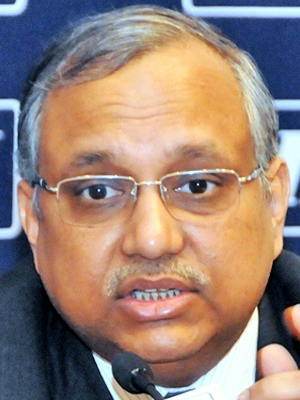 Mr. Chandrajit Banerjee is the Director General of the Confederation of Indian Industry (CII). Mr. Banerjee has been with CII for over 26 years and has been the Director General since May 2008. Mr. Banerjee is a Post-Graduate (M.S.) in Economics with a specialization in Economics of Planning and Econometrics from the University of Calcutta. Earlier, he did his Graduation from St. Xavier’s College (Calcutta) in Economics (Hons.). As Director General, he is responsible for overall operations of CII. Prior to his appointment as Director General, he held several senior positions in CII. Mr. Banerjee has been responsible for important areas of work including the Sectoral Verticals – Manufacturing, Services, Agriculture and Life Sciences Sectors and the SMEs (Small and Medium-Sized Enterprises). He has led key policy work of CII in the areas of Economic Policy, Financial Services and Corporate Governance. He was also the First Executive Director of the National Foundation of Corporate Governance (NFCG), an organization set up by the Ministry of Company Affairs, Government of India. He continues to be a member of the Board of Trustees and Governing Council of NFCG. Earlier Mr. Banerjee served as Head of CII’s regional operations in the Northern, Southern and Western Regions. Over the years Mr. Banerjee has worked out of the CII Headquarters in New Delhi and has also been based out of Kolkata, Chennai, Mumbai, Chandigarh and Ahmedabad. He was also in Bangalore to initiate the Centre of Excellence for the Indian Machine Tool Manufacturers Association (IMTMA), which is a state-of-the-art center for training, conventions and trade fairs. Mr. Banerjee is a part of various advisory committees in the Government of India. He is the Vice Chairman of the Asia Pacific Chapter of UFI, The Global Association of the Exhibition Industry. He is the Co-Chairman of the Governing Council, Overseas Indian Facilitation Centre (OIFC), a non-profit public private initiative of the Ministry of Overseas Indian Affairs (MOIA) and CII, established in 2007. He is a Member of the World Economic Forum’s Global Agenda Council on India. Mr. Banerjee is also a Member of the Board of Governors of the Indian Institute of Management (IIM), Ranchi. Mr. Banerjee has been honored with the China-India Friendship Award by the Chinese Premier Wen Jiabao for his contributions towards the development of bilateral ties between India and China. With 63 offices, including 9 Centers of Excellence, in India, and 7 overseas offices in Australia, China, Egypt, France, Singapore, the UK, and the US, as well as institutional partnerships with 224 counterpart organizations in 90 countries, CII serves as a reference point for Indian industry and the international business community.
Mr. Chandrajit Banerjee is the Director General of the Confederation of Indian Industry (CII). Mr. Banerjee has been with CII for over 26 years and has been the Director General since May 2008. Mr. Banerjee is a Post-Graduate (M.S.) in Economics with a specialization in Economics of Planning and Econometrics from the University of Calcutta. Earlier, he did his Graduation from St. Xavier’s College (Calcutta) in Economics (Hons.). As Director General, he is responsible for overall operations of CII. Prior to his appointment as Director General, he held several senior positions in CII. Mr. Banerjee has been responsible for important areas of work including the Sectoral Verticals – Manufacturing, Services, Agriculture and Life Sciences Sectors and the SMEs (Small and Medium-Sized Enterprises). He has led key policy work of CII in the areas of Economic Policy, Financial Services and Corporate Governance. He was also the First Executive Director of the National Foundation of Corporate Governance (NFCG), an organization set up by the Ministry of Company Affairs, Government of India. He continues to be a member of the Board of Trustees and Governing Council of NFCG. Earlier Mr. Banerjee served as Head of CII’s regional operations in the Northern, Southern and Western Regions. Over the years Mr. Banerjee has worked out of the CII Headquarters in New Delhi and has also been based out of Kolkata, Chennai, Mumbai, Chandigarh and Ahmedabad. He was also in Bangalore to initiate the Centre of Excellence for the Indian Machine Tool Manufacturers Association (IMTMA), which is a state-of-the-art center for training, conventions and trade fairs. Mr. Banerjee is a part of various advisory committees in the Government of India. He is the Vice Chairman of the Asia Pacific Chapter of UFI, The Global Association of the Exhibition Industry. He is the Co-Chairman of the Governing Council, Overseas Indian Facilitation Centre (OIFC), a non-profit public private initiative of the Ministry of Overseas Indian Affairs (MOIA) and CII, established in 2007. He is a Member of the World Economic Forum’s Global Agenda Council on India. Mr. Banerjee is also a Member of the Board of Governors of the Indian Institute of Management (IIM), Ranchi. Mr. Banerjee has been honored with the China-India Friendship Award by the Chinese Premier Wen Jiabao for his contributions towards the development of bilateral ties between India and China. With 63 offices, including 9 Centers of Excellence, in India, and 7 overseas offices in Australia, China, Egypt, France, Singapore, the UK, and the US, as well as institutional partnerships with 224 counterpart organizations in 90 countries, CII serves as a reference point for Indian industry and the international business community.
Dr. Sanjaya Baru
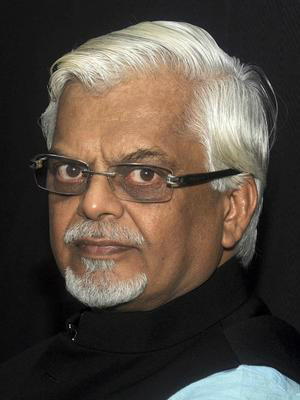 Dr. Sanjaya Baru is a Distinguished Fellow at the Center for Policy Research in New Delhi. He is also the Director for Geo-economics and Strategy at the International Institute of Strategic Studies (IISS) in London. Dr. Baru is the Former Media Advisor to Prime Minister of India, Dr. Manmohan Singh and was also his spokesperson and principal speechwriter (2004-08). He has been Chief Editor of The Financial Express (2000-04), Editor, Business Standard, (2009-11), Editorial Page Editor, The Times of India (1994-98) and Associate Editor, The Economic Times (1990-1994). Dr. Baru was a Visiting Professor at the Lee Kuan Yew School of Public Policy and the Institute of South Asian Studies, Singapore (2008-09). He was also a Professor at the Indian Council for Research in International Economic Relations (1999-2000). Dr. Baru also served as Professor at the Departments of Economics at the Jawaharlal Nehru University (1985-86) and the University of Hyderabad (1979-1990). He was a Member of the National Security Advisory Board of India (1998-2001) and a Member of the India-ASEAN Eminent Persons Group (2011-12). Dr. Baru obtained his Ph.D. and Master’s Degree in Economics from the Jawaharlal Nehru University, New Delhi..
Dr. Sanjaya Baru is a Distinguished Fellow at the Center for Policy Research in New Delhi. He is also the Director for Geo-economics and Strategy at the International Institute of Strategic Studies (IISS) in London. Dr. Baru is the Former Media Advisor to Prime Minister of India, Dr. Manmohan Singh and was also his spokesperson and principal speechwriter (2004-08). He has been Chief Editor of The Financial Express (2000-04), Editor, Business Standard, (2009-11), Editorial Page Editor, The Times of India (1994-98) and Associate Editor, The Economic Times (1990-1994). Dr. Baru was a Visiting Professor at the Lee Kuan Yew School of Public Policy and the Institute of South Asian Studies, Singapore (2008-09). He was also a Professor at the Indian Council for Research in International Economic Relations (1999-2000). Dr. Baru also served as Professor at the Departments of Economics at the Jawaharlal Nehru University (1985-86) and the University of Hyderabad (1979-1990). He was a Member of the National Security Advisory Board of India (1998-2001) and a Member of the India-ASEAN Eminent Persons Group (2011-12). Dr. Baru obtained his Ph.D. and Master’s Degree in Economics from the Jawaharlal Nehru University, New Delhi..
Mr. Walter Douglas
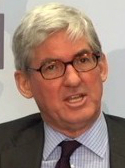 Mr. Walter Douglas is the Minister Counselor for Public Affairs at the US Mission in New Delhi. Prior to arriving in New Delhi in August, Mr. Douglas was a Senior Visiting Fellow at the Center for Strategic and International Studies (CSIS) in Washington, DC. He wrote a report on public diplomacy and the Muslim world. Until October 2011, Mr. Douglas was based in Islamabad as the Director of Communications for the US Mission in Pakistan. Before that, he served in Washington as Executive Assistant to the Under Secretary for Public Diplomacy and Public Affairs and as the Director of the Office of Press and Public Diplomacy in the Near Eastern Affairs Bureau. This followed a tour as Public Affairs Officer at the US Embassy in Riyadh, Saudi Arabia. Mr. Douglas also served as a Public Affairs Officer at US diplomatic missions in Turkey, Cyprus, and Iceland. He was Deputy to the Spokesman at the US Mission to the United Nations when Madeleine Albright was Ambassador. Earlier, he served at the US Missions in South Korea and Cote d’Ivoire. Prior to joining the Foreign Service, Mr. Douglas worked as an advertising executive in New York and as a legislative assistant to a member of the US House of Representatives. Mr. Douglas graduated from the University of Pennsylvania with a B.A. in history in 1977.
Mr. Walter Douglas is the Minister Counselor for Public Affairs at the US Mission in New Delhi. Prior to arriving in New Delhi in August, Mr. Douglas was a Senior Visiting Fellow at the Center for Strategic and International Studies (CSIS) in Washington, DC. He wrote a report on public diplomacy and the Muslim world. Until October 2011, Mr. Douglas was based in Islamabad as the Director of Communications for the US Mission in Pakistan. Before that, he served in Washington as Executive Assistant to the Under Secretary for Public Diplomacy and Public Affairs and as the Director of the Office of Press and Public Diplomacy in the Near Eastern Affairs Bureau. This followed a tour as Public Affairs Officer at the US Embassy in Riyadh, Saudi Arabia. Mr. Douglas also served as a Public Affairs Officer at US diplomatic missions in Turkey, Cyprus, and Iceland. He was Deputy to the Spokesman at the US Mission to the United Nations when Madeleine Albright was Ambassador. Earlier, he served at the US Missions in South Korea and Cote d’Ivoire. Prior to joining the Foreign Service, Mr. Douglas worked as an advertising executive in New York and as a legislative assistant to a member of the US House of Representatives. Mr. Douglas graduated from the University of Pennsylvania with a B.A. in history in 1977.
Dr. Bharath Gopalaswamy
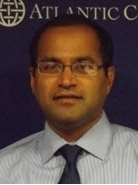 Dr. Bharath Gopalaswamy is the Acting Director of the South Asia Center. Prior to joining the Atlantic Council, Dr. Gopalaswamy managed the Program in Arms Control, Disarmament, and International Security at the University of Illinois at Urbana-Champaign, where he oversaw developing projects on space security and South Asia. He has held research appointments with the Stockholm International Peace Research Institute and with Cornell University’s Judith Reppy Institute of Peace and Conflict Studies. Dr. Gopalaswamy holds a Ph.D. in mechanical engineering with a specialization in numerical acoustics from Trinity College, Dublin. In addition to his studies abroad, he has previously worked at the Indian Space Research Organization’s High Altitude Test Facilities and the EADS Astrium GmbH division in Germany.
Dr. Bharath Gopalaswamy is the Acting Director of the South Asia Center. Prior to joining the Atlantic Council, Dr. Gopalaswamy managed the Program in Arms Control, Disarmament, and International Security at the University of Illinois at Urbana-Champaign, where he oversaw developing projects on space security and South Asia. He has held research appointments with the Stockholm International Peace Research Institute and with Cornell University’s Judith Reppy Institute of Peace and Conflict Studies. Dr. Gopalaswamy holds a Ph.D. in mechanical engineering with a specialization in numerical acoustics from Trinity College, Dublin. In addition to his studies abroad, he has previously worked at the Indian Space Research Organization’s High Altitude Test Facilities and the EADS Astrium GmbH division in Germany.
Ms. Sumona Guha
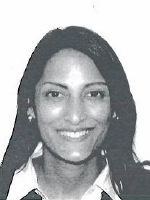 Ms. Sumona Guha is a member of the US Secretary of State’s Policy Planning Staff, responsible for India, South Asia, and Central Asia strategy development. She has previously served as a Senior Advisor to the US Special Representative for Afghanistan and Pakistan and as a Special Advisor for National Security Affairs to Vice President Joe Biden. Ms. Guha has close to two decades of foreign policy experience spanning the White House, Capitol Hill, and various postings at the US State Department. Ms. Guha holds a M.A. from Georgetown University and a B.A. from Johns Hopkins University.
Ms. Sumona Guha is a member of the US Secretary of State’s Policy Planning Staff, responsible for India, South Asia, and Central Asia strategy development. She has previously served as a Senior Advisor to the US Special Representative for Afghanistan and Pakistan and as a Special Advisor for National Security Affairs to Vice President Joe Biden. Ms. Guha has close to two decades of foreign policy experience spanning the White House, Capitol Hill, and various postings at the US State Department. Ms. Guha holds a M.A. from Georgetown University and a B.A. from Johns Hopkins University.
Dr. Arvind Gupta
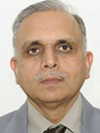 Dr. Arvind Gupta is the Deputy National Security Advisor (NSA) of India. Dr. Gupta took over this position in August 2014. Previously, in 2012, he served as Director General of the Institute for Defense Studies and Analyses (IDSA). He also worked in the Ministry of External Affairs in different capacities and served in diplomatic missions in Moscow, London and Ankara, Dr. Gupta speaks Russian. He retired from the Indian Foreign Service in 2013. He held the Lal Bahadur Shastri Chair on National Security at the IDSA from 2008 to 2011. Prior to joining the IDSA, he was Joint Secretary at the National Security Council Secretariat (NSCS) from 1999 to 2007. During his tenure at the NSCS he dealt with a wide range of international and national security issues and participated in the various working groups and task forces set up by the NSC. He also worked with the Kargil Review Committee.
Dr. Arvind Gupta is the Deputy National Security Advisor (NSA) of India. Dr. Gupta took over this position in August 2014. Previously, in 2012, he served as Director General of the Institute for Defense Studies and Analyses (IDSA). He also worked in the Ministry of External Affairs in different capacities and served in diplomatic missions in Moscow, London and Ankara, Dr. Gupta speaks Russian. He retired from the Indian Foreign Service in 2013. He held the Lal Bahadur Shastri Chair on National Security at the IDSA from 2008 to 2011. Prior to joining the IDSA, he was Joint Secretary at the National Security Council Secretariat (NSCS) from 1999 to 2007. During his tenure at the NSCS he dealt with a wide range of international and national security issues and participated in the various working groups and task forces set up by the NSC. He also worked with the Kargil Review Committee.
Mr. Ziad Haider
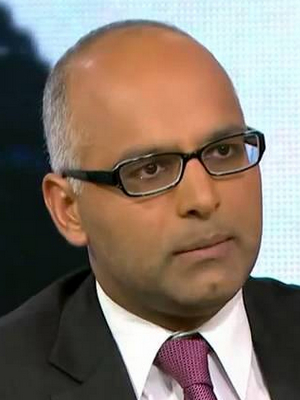 Mr. Ziad Haider is a Member of the Secretary of State’s Policy Planning Staff at the US Department of State covering global economic affairs. He previously served as a White House Fellow in the Office of the Deputy Attorney General at the US Department of Justice (DOJ) where he represented the DOJ in senior bilateral and inter-agency dialogues on money laundering, sanctions, and law enforcement issues in the Asia-Pacific region and chaired strategic reviews on the DOJ’s engagement in the Middle East and North Africa and in sub-Saharan Africa. He has also served as a Foreign Policy Legislative Aide in the US Senate and Professional Staff on the House Committee on Homeland Security. Previously, Mr. Haider was an attorney at White & Case LLP where he represented clients in investor-state disputes before the International Centre for Settlement of Investment Disputes and counseled clients on regulatory and national security matters, including US sanctions and the Committee on Foreign Investment in the United States (CFIUS) review process. Mr. Haider has an extensive background in economic, legal, security, and human rights issues across Asia. He was a Fulbright Scholar in Southeast Asia studying Islamic law and contributing a monthly foreign affairs column to The Sun (Malaysia); an American Society of International Law Fellow in South Asia analyzing governance reforms; and a Yale Council on East Asian Studies Fellow at Human Rights Watch’s China Program. His writings have appeared in Foreign Policy, The Atlantic, Financial Times, Far Eastern Economic Review, and CNN. He currently serves as President Elect of the White House Fellows Foundation and Association and Asia Director of the Truman National Security Project and is a Term Member of the Council on Foreign Relations and a Member of the American Society of International Law. Fluent in Urdu and proficient in Mandarin and French, he received his J.D. and M.P.A. from Georgetown and Harvard and B.A. from Yale.
Mr. Ziad Haider is a Member of the Secretary of State’s Policy Planning Staff at the US Department of State covering global economic affairs. He previously served as a White House Fellow in the Office of the Deputy Attorney General at the US Department of Justice (DOJ) where he represented the DOJ in senior bilateral and inter-agency dialogues on money laundering, sanctions, and law enforcement issues in the Asia-Pacific region and chaired strategic reviews on the DOJ’s engagement in the Middle East and North Africa and in sub-Saharan Africa. He has also served as a Foreign Policy Legislative Aide in the US Senate and Professional Staff on the House Committee on Homeland Security. Previously, Mr. Haider was an attorney at White & Case LLP where he represented clients in investor-state disputes before the International Centre for Settlement of Investment Disputes and counseled clients on regulatory and national security matters, including US sanctions and the Committee on Foreign Investment in the United States (CFIUS) review process. Mr. Haider has an extensive background in economic, legal, security, and human rights issues across Asia. He was a Fulbright Scholar in Southeast Asia studying Islamic law and contributing a monthly foreign affairs column to The Sun (Malaysia); an American Society of International Law Fellow in South Asia analyzing governance reforms; and a Yale Council on East Asian Studies Fellow at Human Rights Watch’s China Program. His writings have appeared in Foreign Policy, The Atlantic, Financial Times, Far Eastern Economic Review, and CNN. He currently serves as President Elect of the White House Fellows Foundation and Association and Asia Director of the Truman National Security Project and is a Term Member of the Council on Foreign Relations and a Member of the American Society of International Law. Fluent in Urdu and proficient in Mandarin and French, he received his J.D. and M.P.A. from Georgetown and Harvard and B.A. from Yale.
Gov. Jon M. Huntsman, Jr.
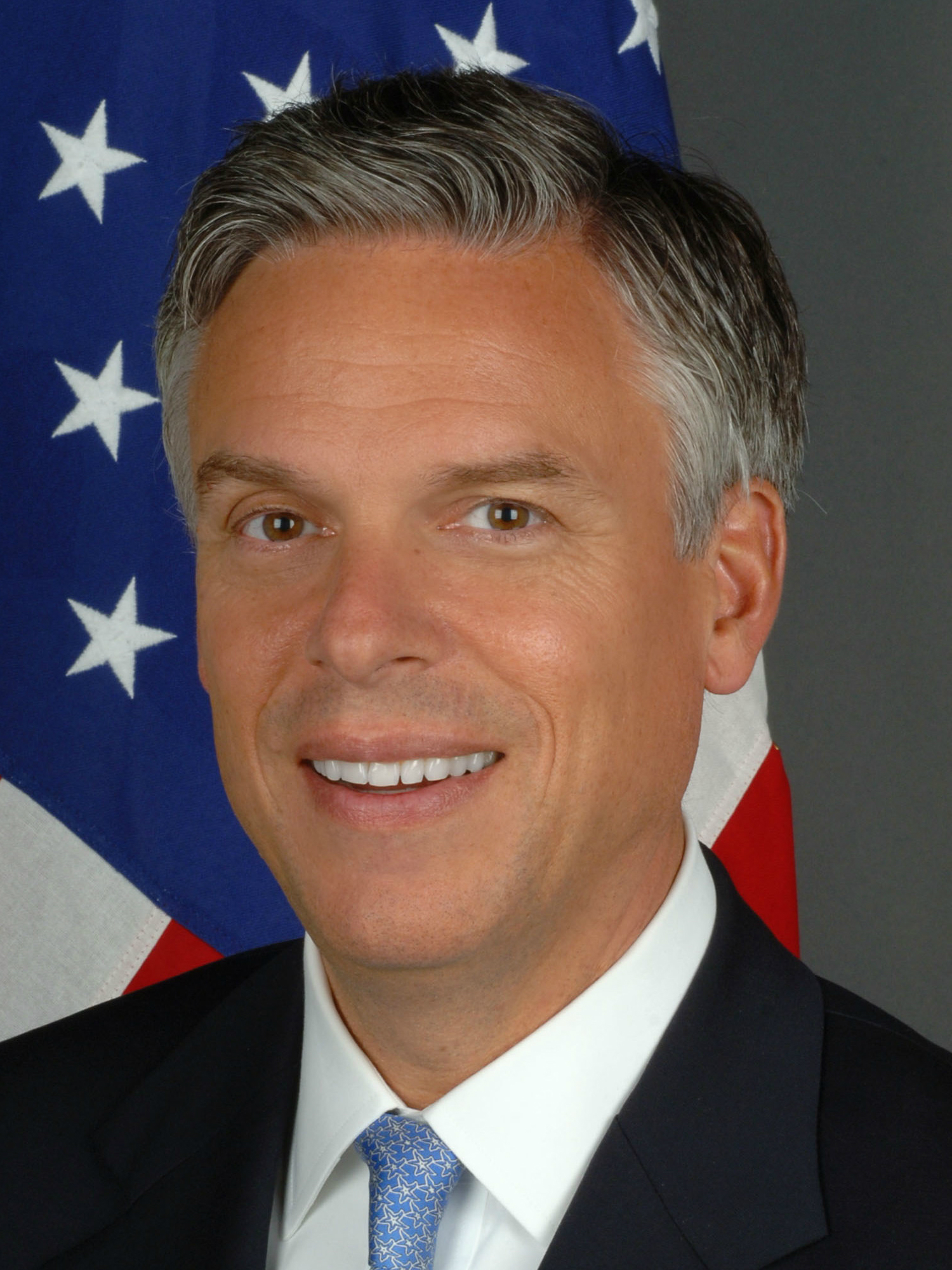 Gov. Jon M. Huntsman, Jr. is Chairman of the Atlantic Council Board of Directors. He began his career in public service as a Staff Assistant to President Ronald Reagan. He has served each of the four US presidents since then in critical roles around the world, including as Ambassador to Singapore, Deputy Assistant Secretary of Commerce for Asia, US Trade Ambassador, and most recently, US Ambassador to China. In all three Senate confirmations, he received unanimous votes. Twice elected governor of Utah, Governor Huntsman brought about strong economic reforms, tripled the state’s rainy day fund, and helped bring unemployment rates to historic lows. During his tenure, Utah was named the best managed state in America. Recognized by others for his service, Governor Huntsman was elected as chairman of the Western Governors Association, serving nineteen states throughout the region. He currently serves on the boards of Ford Motor Company, Caterpillar Corporation, Chevron Corporation, Huntsman Corporation, the US Naval Academy Foundation, and the University of Pennsylvania. In addition, he serves as a distinguished fellow at the Brookings Institute, a trustee of the Carnegie Endowment for International Peace, a trustee of the Reagan Presidential Foundation, and Chairman of the Huntsman Cancer Foundation. Governor Huntsman has served as a visiting fellow at Harvard University’s John F. Kennedy School of Government as well as a distinguished lecturer at Duke University’s Sanford School of Public Policy. He was recently inducted into the American Academy of Diplomacy. Governor Huntsman is the father of seven children, including two adopted daughters from China and India. His two sons are midshipmen at the US Naval Academy, where his oldest son was selected as a Naval Aviator. Governor Huntsman is a graduate of the University of Pennsylvania and has eight honorary doctoral degrees.
Gov. Jon M. Huntsman, Jr. is Chairman of the Atlantic Council Board of Directors. He began his career in public service as a Staff Assistant to President Ronald Reagan. He has served each of the four US presidents since then in critical roles around the world, including as Ambassador to Singapore, Deputy Assistant Secretary of Commerce for Asia, US Trade Ambassador, and most recently, US Ambassador to China. In all three Senate confirmations, he received unanimous votes. Twice elected governor of Utah, Governor Huntsman brought about strong economic reforms, tripled the state’s rainy day fund, and helped bring unemployment rates to historic lows. During his tenure, Utah was named the best managed state in America. Recognized by others for his service, Governor Huntsman was elected as chairman of the Western Governors Association, serving nineteen states throughout the region. He currently serves on the boards of Ford Motor Company, Caterpillar Corporation, Chevron Corporation, Huntsman Corporation, the US Naval Academy Foundation, and the University of Pennsylvania. In addition, he serves as a distinguished fellow at the Brookings Institute, a trustee of the Carnegie Endowment for International Peace, a trustee of the Reagan Presidential Foundation, and Chairman of the Huntsman Cancer Foundation. Governor Huntsman has served as a visiting fellow at Harvard University’s John F. Kennedy School of Government as well as a distinguished lecturer at Duke University’s Sanford School of Public Policy. He was recently inducted into the American Academy of Diplomacy. Governor Huntsman is the father of seven children, including two adopted daughters from China and India. His two sons are midshipmen at the US Naval Academy, where his oldest son was selected as a Naval Aviator. Governor Huntsman is a graduate of the University of Pennsylvania and has eight honorary doctoral degrees.
Amb. Dr. S. Jaishankar
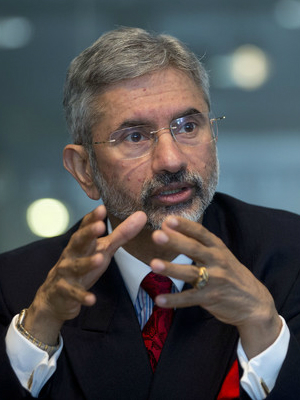 Amb. Dr. S. Jaishankar is the Foreign Secretary of India. He served as Ambassador of India to the United States from 2013-2015. Ambassador Jaishankar came to Washington, DC with more than three decades of diplomatic experience. Joining the Indian Foreign Service in 1977, Ambassador Jaishankar represented India’s interests and fostered friendly working relationships in countries around the world. Ambassador Jaishankar’s first posting abroad was as Third, and later Second, Secretary (Political) at the Embassy of India in Moscow from 1979 to 1981. From 1981 to 1985, he served as Under Secretary (Americas) and Policy Planning in the Ministry of External Affairs. He then spent three years from 1985 to 1988 as First Secretary handling political affairs at the Indian Embassy in Washington, DC, followed by two years as First Secretary and Political Advisor to the Indian Peace Keeping Force (IPKF) in Sri Lanka. In 1990, Ambassador Jaishankar became the Commercial Counsellor in Budapest. After three years in that position, he returned to India where he served first as the Director of East Europe for the Ministry of External Affairs, and then as Press Secretary for the President of India. Following this service in India, he went abroad again – to Tokyo in 1996 as Deputy Chief of Mission. In the year 2000, he was appointed Ambassador to the Czech Republic and served in Prague till 2004. Upon completing his time as Ambassador in Prague, Ambassador Jaishankar returned once again to India, where he led the Americas Division in the Ministry of External Affairs. After three years heading that division, he again left India in 2007 to serve as High Commissioner to Singapore for two years. Most recently, Ambassador Jaishankar was Ambassador to China from 2009 to 2013. Ambassador Jaishankar holds a Ph.D. and M.Phil. in International Relations and a M.A. in Political Science. He is a member of the International Institute for Strategic Studies in London. Ambassador Jaishankar is married to Kyoko Jaishankar and has two sons and a daughter.
Amb. Dr. S. Jaishankar is the Foreign Secretary of India. He served as Ambassador of India to the United States from 2013-2015. Ambassador Jaishankar came to Washington, DC with more than three decades of diplomatic experience. Joining the Indian Foreign Service in 1977, Ambassador Jaishankar represented India’s interests and fostered friendly working relationships in countries around the world. Ambassador Jaishankar’s first posting abroad was as Third, and later Second, Secretary (Political) at the Embassy of India in Moscow from 1979 to 1981. From 1981 to 1985, he served as Under Secretary (Americas) and Policy Planning in the Ministry of External Affairs. He then spent three years from 1985 to 1988 as First Secretary handling political affairs at the Indian Embassy in Washington, DC, followed by two years as First Secretary and Political Advisor to the Indian Peace Keeping Force (IPKF) in Sri Lanka. In 1990, Ambassador Jaishankar became the Commercial Counsellor in Budapest. After three years in that position, he returned to India where he served first as the Director of East Europe for the Ministry of External Affairs, and then as Press Secretary for the President of India. Following this service in India, he went abroad again – to Tokyo in 1996 as Deputy Chief of Mission. In the year 2000, he was appointed Ambassador to the Czech Republic and served in Prague till 2004. Upon completing his time as Ambassador in Prague, Ambassador Jaishankar returned once again to India, where he led the Americas Division in the Ministry of External Affairs. After three years heading that division, he again left India in 2007 to serve as High Commissioner to Singapore for two years. Most recently, Ambassador Jaishankar was Ambassador to China from 2009 to 2013. Ambassador Jaishankar holds a Ph.D. and M.Phil. in International Relations and a M.A. in Political Science. He is a member of the International Institute for Strategic Studies in London. Ambassador Jaishankar is married to Kyoko Jaishankar and has two sons and a daughter.
Dr. Gaurav Kampani
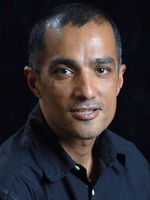 Dr. Gaurav Kampani is a Senior Non-Resident Fellow at the Atlantic Council’s South Asia Center. He is an Assistant Professor of Political Science at the University of Tulsa. During 2013-14, he was a Post-Doctoral Transatlantic Fellow in International Relations & Security at the Norwegian Institute of Defense Studies in Oslo. Between 1998 and 2005, Dr. Kampani was a Senior Research Associate at the James Martin Center for Nonproliferation Studies in Monterey, CA. During 2010-2011, he was a Stanton Nuclear Security Fellow at Stanford University’s Center for International Security & Cooperation. Dr. Kampani’s research interests cover international security and focus on the relationship between domestic institutions and strategic policy, military strategy, operations planning, and weapons development. Dr. Kampani’s teaching spans world politics, the global commons, US foreign and national security policy, and South Asia.
Dr. Gaurav Kampani is a Senior Non-Resident Fellow at the Atlantic Council’s South Asia Center. He is an Assistant Professor of Political Science at the University of Tulsa. During 2013-14, he was a Post-Doctoral Transatlantic Fellow in International Relations & Security at the Norwegian Institute of Defense Studies in Oslo. Between 1998 and 2005, Dr. Kampani was a Senior Research Associate at the James Martin Center for Nonproliferation Studies in Monterey, CA. During 2010-2011, he was a Stanton Nuclear Security Fellow at Stanford University’s Center for International Security & Cooperation. Dr. Kampani’s research interests cover international security and focus on the relationship between domestic institutions and strategic policy, military strategy, operations planning, and weapons development. Dr. Kampani’s teaching spans world politics, the global commons, US foreign and national security policy, and South Asia.
Mr. Frederick Kempe
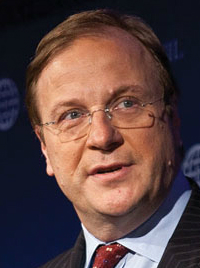 Mr. Frederick Kempe is the President and CEO of the Atlantic Council. He is the author of four books, and a regular commentator on television and radio both in Europe and the United States. His latest book, BERLIN 1961: Kennedy, Khrushchev and the Most Dangerous Place on Earth (foreword by Gen. Brent Scowcroft) was published by Putnam in 2012 and is a New York Times bestseller. Under his leadership, the Council has achieved significant growth while considerably expanding its staff, work, and influence in areas that include international security, business and economics, energy and environment, and global issues of transatlantic interest ranging from Asia to Africa. He comes to the Council from a prominent twenty-five-year career at the Wall Street Journal, where he won national and international recognition while serving in numerous senior editorial and reportorial capacities. His last position with the paper was in New York, where he served as Assistant Managing Editor, International, and “Thinking Global” columnist. Prior to that, he was for seven years the longest-serving Editor and Associate Publisher ever of the Wall Street Journal Europe, simultaneously functioning as European Editor for the Global Wall Street Journal from 2002 to 2005. During this time he managed six news bureaus, several satellite offices, a Brussels news desk operation, and he oversaw European and Middle Eastern reporting. He is a graduate of the University of Utah and has a Master’s Degree from Columbia University’s Graduate School of Journalism, where he was a member of the International Fellows Program in the School of International Affairs. He has received honorary doctorates from the University of Maryland University College and from Queens University in Charlotte, North Carolina and is a visiting fellow at Oxford University’s Said School of Business. He has won the Columbia Graduate School of Journalism’s top alumni achievement award and the University of Utah’s prize for the top young alumnus. He serves on a number of boards of directors, including the American Institute for Contemporary German Studies at Johns Hopkins University, and is on the advisory board of the Transatlantic Policy Network as well as the international advisory council of Atlantik-Bruecke e.V. in Berlin. He also served on the Senior Advisory Group of Admiral James Stavridis, Commander, US European Command (EUCOM). He is a member of the Council on Foreign Relations. Mr. Kempe speaks German and is the son of German immigrants who came to the United States before World War II. His wife, Pamela Meyer, is the CEO of Calibrate. They live with their daughter, Johanna, in Washington, DC.
Mr. Frederick Kempe is the President and CEO of the Atlantic Council. He is the author of four books, and a regular commentator on television and radio both in Europe and the United States. His latest book, BERLIN 1961: Kennedy, Khrushchev and the Most Dangerous Place on Earth (foreword by Gen. Brent Scowcroft) was published by Putnam in 2012 and is a New York Times bestseller. Under his leadership, the Council has achieved significant growth while considerably expanding its staff, work, and influence in areas that include international security, business and economics, energy and environment, and global issues of transatlantic interest ranging from Asia to Africa. He comes to the Council from a prominent twenty-five-year career at the Wall Street Journal, where he won national and international recognition while serving in numerous senior editorial and reportorial capacities. His last position with the paper was in New York, where he served as Assistant Managing Editor, International, and “Thinking Global” columnist. Prior to that, he was for seven years the longest-serving Editor and Associate Publisher ever of the Wall Street Journal Europe, simultaneously functioning as European Editor for the Global Wall Street Journal from 2002 to 2005. During this time he managed six news bureaus, several satellite offices, a Brussels news desk operation, and he oversaw European and Middle Eastern reporting. He is a graduate of the University of Utah and has a Master’s Degree from Columbia University’s Graduate School of Journalism, where he was a member of the International Fellows Program in the School of International Affairs. He has received honorary doctorates from the University of Maryland University College and from Queens University in Charlotte, North Carolina and is a visiting fellow at Oxford University’s Said School of Business. He has won the Columbia Graduate School of Journalism’s top alumni achievement award and the University of Utah’s prize for the top young alumnus. He serves on a number of boards of directors, including the American Institute for Contemporary German Studies at Johns Hopkins University, and is on the advisory board of the Transatlantic Policy Network as well as the international advisory council of Atlantik-Bruecke e.V. in Berlin. He also served on the Senior Advisory Group of Admiral James Stavridis, Commander, US European Command (EUCOM). He is a member of the Council on Foreign Relations. Mr. Kempe speaks German and is the son of German immigrants who came to the United States before World War II. His wife, Pamela Meyer, is the CEO of Calibrate. They live with their daughter, Johanna, in Washington, DC.
Amb. Zalmay Khalilzad
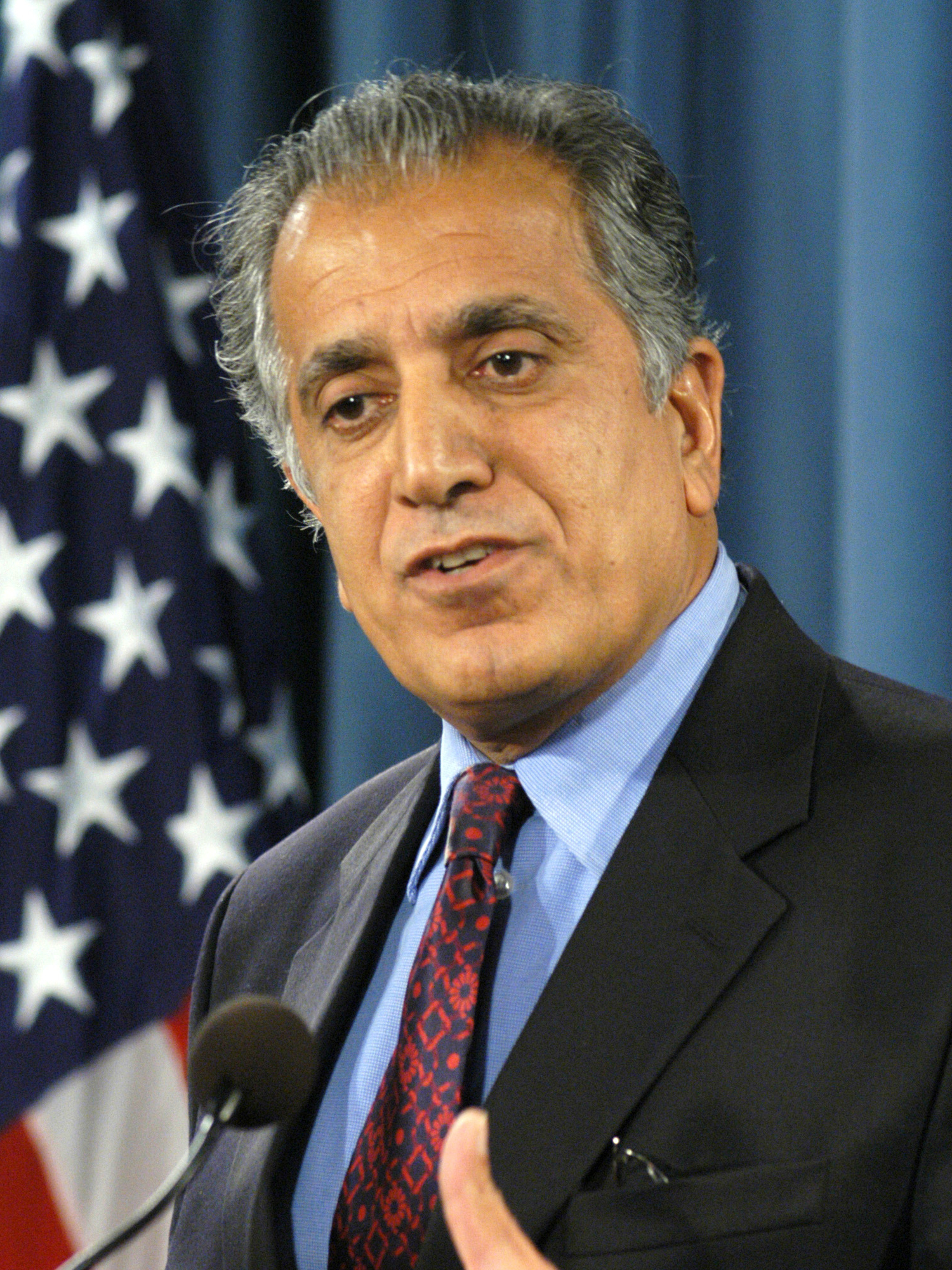 Amb. Zalmay Khalilzad is President of Gryphon Partners, a global advisory firm based in Washington, DC. He has been involved with US policy makers at the White House, State Department and Pentagon since the mid-1980s, and was the highest-ranking Muslim American in the Administration of US President George W. Bush. Ambassador Khalilzad’s previous assignments in the Administration include Ambassador to Afghanistan (2003-2005), Ambassador to Iraq (2005-2007), and US Permanent Representative to the United Nations (2007-2009). Prior to entering government service, Ambassador Khalilzad worked as an Assistant Professor of Political Science at Columbia University’s School of International and Public Affairs from 1979 to 1989. During that time, he worked closely with Zbigniew Brzezinski, the Carter Administration’s architect of the policy supporting the mujahedeen resistance to the Soviet Union’s invasion of Afghanistan. In 1984, Ambassador Khalilzad accepted a one-year Council on Foreign Relations fellowship to join the State Department, where he was an advisor to the Near East and South Asia Bureau headed by Richard W. Murphy. From 1985 to 1989, Ambassador Khalilzad served in President Ronald Reagan’s Administration as a senior State Department official advising on the Soviet war in Afghanistan and the Iran–Iraq War. Between 1993 and 2000, Ambassador Khalilzad was the Director of the Strategy, Doctrine, and Force Structure at the RAND Corporation. During this time, he helped found RAND’s Center for Middle Eastern Studies as well as “Strategic Appraisal,” a periodic RAND publication. In 2001, President George W. Bush asked Ambassador Khalilzad to head the Bush-Cheney transition team for the Department of Defense and Ambassador Khalilzad briefly served as Counselor to Secretary of Defense Donald Rumsfeld.
Amb. Zalmay Khalilzad is President of Gryphon Partners, a global advisory firm based in Washington, DC. He has been involved with US policy makers at the White House, State Department and Pentagon since the mid-1980s, and was the highest-ranking Muslim American in the Administration of US President George W. Bush. Ambassador Khalilzad’s previous assignments in the Administration include Ambassador to Afghanistan (2003-2005), Ambassador to Iraq (2005-2007), and US Permanent Representative to the United Nations (2007-2009). Prior to entering government service, Ambassador Khalilzad worked as an Assistant Professor of Political Science at Columbia University’s School of International and Public Affairs from 1979 to 1989. During that time, he worked closely with Zbigniew Brzezinski, the Carter Administration’s architect of the policy supporting the mujahedeen resistance to the Soviet Union’s invasion of Afghanistan. In 1984, Ambassador Khalilzad accepted a one-year Council on Foreign Relations fellowship to join the State Department, where he was an advisor to the Near East and South Asia Bureau headed by Richard W. Murphy. From 1985 to 1989, Ambassador Khalilzad served in President Ronald Reagan’s Administration as a senior State Department official advising on the Soviet war in Afghanistan and the Iran–Iraq War. Between 1993 and 2000, Ambassador Khalilzad was the Director of the Strategy, Doctrine, and Force Structure at the RAND Corporation. During this time, he helped found RAND’s Center for Middle Eastern Studies as well as “Strategic Appraisal,” a periodic RAND publication. In 2001, President George W. Bush asked Ambassador Khalilzad to head the Bush-Cheney transition team for the Department of Defense and Ambassador Khalilzad briefly served as Counselor to Secretary of Defense Donald Rumsfeld.
Lt. Gen. (Retd.) Davinder Kumar
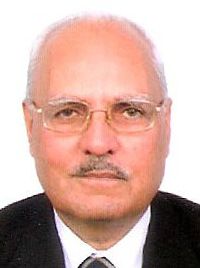 Lt. Gen. (Retd.) Davinder Kumar is a scholar, soldier and a thinker. He retired as the Signal Officer-in-Chief of the Indian Army in September, 2006, after rendering 41 years of distinguished service. Thereafter, he was the CEO & Managing Director of Tata Advanced Systems Ltd, Tata’s lead vehicle in defence, aerospace, and homeland security till September, 2011. He has been on the Board of Directors of both Public and Private sector companies. An expert in Network Centric Information and Cyber Warfare, he was instrumental for the approval and setting up of the Army Cyber Group and the First Information Warfare Brigade of the Indian Army. He was the Project Director of the Army Strategic Communication Network (ASCON) and is the author of the Defence Communication Network (1995) and Tactical Communication System (1996). He was also in charge of ASTROIDS, a number of regional optical fibre and satellite based networks in some of the most inhospitable terrains in the North and East India. He headed the national study on Cryptography and was the member of the National Committee on spectrum management. He was also Advisor to the Government of Madhya Pradesh on Information Technology. He has worked with the Indian Space Research Organisation (ISRO), Oil India, and the Planning Commission. He has been an examiner for the University Grants Commission, on the Court of The Indraprasatha University, a member of the Hardware and Human Resource Groups of the IT Task Force, and a member of the Advisory Committee of National Disaster Management Authority appointed by the Prime Minister. He was associated with the formulation of the IT Act in 2000. He is a recipient of five National Awards including the highest for Distinguished Service of the Most Exceptional Order. He also got the Best Engineer Award in 2005 and is the only serving officer to have been awarded a Fellowship from the Indian National Academy of Engineering. He has over 400 papers to his credit and has also been invited to speak at various international fora like RAND Corporation, International Telecommunication Union (ITU), World Battle Space Research Organisation, Brookings Institute, ASPEN Institute, Wharton School at the University of Pennsylvania, and Centre for Strategic and International Studies, Beijing.
Lt. Gen. (Retd.) Davinder Kumar is a scholar, soldier and a thinker. He retired as the Signal Officer-in-Chief of the Indian Army in September, 2006, after rendering 41 years of distinguished service. Thereafter, he was the CEO & Managing Director of Tata Advanced Systems Ltd, Tata’s lead vehicle in defence, aerospace, and homeland security till September, 2011. He has been on the Board of Directors of both Public and Private sector companies. An expert in Network Centric Information and Cyber Warfare, he was instrumental for the approval and setting up of the Army Cyber Group and the First Information Warfare Brigade of the Indian Army. He was the Project Director of the Army Strategic Communication Network (ASCON) and is the author of the Defence Communication Network (1995) and Tactical Communication System (1996). He was also in charge of ASTROIDS, a number of regional optical fibre and satellite based networks in some of the most inhospitable terrains in the North and East India. He headed the national study on Cryptography and was the member of the National Committee on spectrum management. He was also Advisor to the Government of Madhya Pradesh on Information Technology. He has worked with the Indian Space Research Organisation (ISRO), Oil India, and the Planning Commission. He has been an examiner for the University Grants Commission, on the Court of The Indraprasatha University, a member of the Hardware and Human Resource Groups of the IT Task Force, and a member of the Advisory Committee of National Disaster Management Authority appointed by the Prime Minister. He was associated with the formulation of the IT Act in 2000. He is a recipient of five National Awards including the highest for Distinguished Service of the Most Exceptional Order. He also got the Best Engineer Award in 2005 and is the only serving officer to have been awarded a Fellowship from the Indian National Academy of Engineering. He has over 400 papers to his credit and has also been invited to speak at various international fora like RAND Corporation, International Telecommunication Union (ITU), World Battle Space Research Organisation, Brookings Institute, ASPEN Institute, Wharton School at the University of Pennsylvania, and Centre for Strategic and International Studies, Beijing.
Dr. Peter R. Lavoy
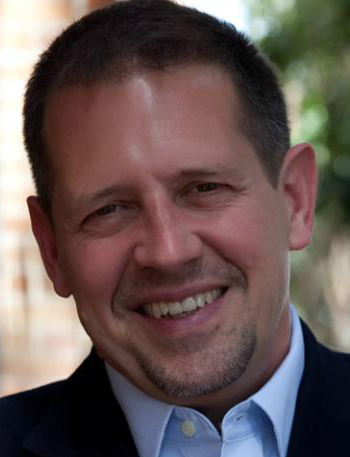 Dr. Peter R. Lavoy is a Partner at Monitor 360. A recognized thought leader in national security strategy, Asian politics and security, and government transformation, Dr. Lavoy helps clients solve their most complex analytic, strategic, and organizational challenges. Dr. Lavoy has over twenty years of US government experience. Prior to joining Monitor 360 in January 2014, he was Acting Assistant Secretary of Defense for Asian and Pacific Security Affairs. Previously he served in the Office of the Director of National Intelligence as Deputy Director of National Intelligence for Analysis, Chairman of the National Intelligence Council and National Intelligence Officer for South Asia. Earlier, he founded and directed the Center for Contemporary Conflict and taught in the National Security Affairs Department of the Naval Postgraduate School in Monterey, CA. In addition to his many classified publications, Dr. Lavoy has edited several books and written numerous journal articles and book chapters on Asian security and weapons proliferation. His edited books are Over the Horizon Proliferation Threats (Stanford University Press, 2012), Asymmetric Warfare in South Asia: The Causes and Consequences of the Kargil Conflict (Cambridge University Press, 2009), Terrorism, War, or Disease?: Unraveling the Use of Biological Weapons (Stanford University Press, 2008), Nuclear Weapons Proliferation in the Next Decade (Routledge, 2008), and Planning the Unthinkable: How New Powers Will Use Nuclear, Biological and Chemical Weapons (Cornell University Press, 2000). Dr. Lavoy received an M.A. and Ph.D. in Political Science from the University of California, Berkeley and a B.A. in Government from Oberlin College.
Dr. Peter R. Lavoy is a Partner at Monitor 360. A recognized thought leader in national security strategy, Asian politics and security, and government transformation, Dr. Lavoy helps clients solve their most complex analytic, strategic, and organizational challenges. Dr. Lavoy has over twenty years of US government experience. Prior to joining Monitor 360 in January 2014, he was Acting Assistant Secretary of Defense for Asian and Pacific Security Affairs. Previously he served in the Office of the Director of National Intelligence as Deputy Director of National Intelligence for Analysis, Chairman of the National Intelligence Council and National Intelligence Officer for South Asia. Earlier, he founded and directed the Center for Contemporary Conflict and taught in the National Security Affairs Department of the Naval Postgraduate School in Monterey, CA. In addition to his many classified publications, Dr. Lavoy has edited several books and written numerous journal articles and book chapters on Asian security and weapons proliferation. His edited books are Over the Horizon Proliferation Threats (Stanford University Press, 2012), Asymmetric Warfare in South Asia: The Causes and Consequences of the Kargil Conflict (Cambridge University Press, 2009), Terrorism, War, or Disease?: Unraveling the Use of Biological Weapons (Stanford University Press, 2008), Nuclear Weapons Proliferation in the Next Decade (Routledge, 2008), and Planning the Unthinkable: How New Powers Will Use Nuclear, Biological and Chemical Weapons (Cornell University Press, 2000). Dr. Lavoy received an M.A. and Ph.D. in Political Science from the University of California, Berkeley and a B.A. in Government from Oberlin College.
Amb. Lalit Mansingh
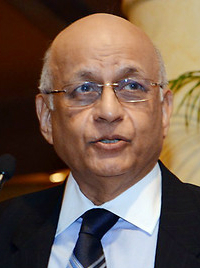 Amb. Lalit Mansingh is India’s Former Foreign Secretary and Former Ambassador to the US. He is also the Former High Commissioner to the UK. Ambassador Mansingh is currently the Chairman of FICCI-India US Policy Group and President of the World Cultural Forum (India). Ambassador Mansingh has also been an Ambassador to the United Arab Emirates and High Commissioner in Nigeria with concurrent accreditation to Benin, Chad and Cameroon. Ambassador Mansingh joined the Indian Foreign Service in 1963 after securing the first position in the All India Civil Service Examination. After his initial posting in Geneva, he went on to serve as Deputy Chief of Mission in the Indian Embassies in Kabul, Brussels, and Washington, DC. At the headquarters in Delhi, he worked on a variety of assignments: as Joint Secretary in the Ministry of Finance, Director General of the Indian Council for Cultural Relations, Dean of the Foreign Service Institute, and Secretary (West) at the Ministry of External Affairs. He is Professor Emeritus at the Foreign Service Institute of India; Member of the Governing Body/Executive Committee of institutions in New Delhi including the Institute of Peace and Conflict Studies; Development Alternatives and Indian Council for Sustainable Development. He is on the International Advisory Boards of APCO Worldwide, Washington and the Bonita International Trust, London. Ambassador Mansingh is active in a number of international initiatives for conflict resolution, regional security and sustainable development. As a member of an international group of elder statesmen constituted by the Brookings Institute, Stanford and New York University, he worked on a project entitled Managing Global Insecurity that resulted in the publication Power and Responsibility in 2009. He is a member of an international group called the Non-Official Group of Friends of Sri Lanka, which aims at assisting the country in its post-conflict reconstruction and reconciliation. Ambassador Mansingh is part of a Track II dialogue between India and Pakistan focusing on Confidence-Building Measures between the two nuclear-armed neighbors. He is participating in a project on Expanded Non Proliferation organized by the Center for Strategic and International Studies and the Nuclear Threat Initiative in Washington, DC. He has been a Trustee of The International Crisis Group since July 2010. He serves as a Member of the International Advisory Council at APCO Worldwide Inc. He worked as a Research Fellow in American Studies at the School of International Studies in Delhi and as a Lecturer in the Post-Graduate Department of Political Science at Utkal University, Bhubaneswar, Orissa. Ambassador Mansingh graduated in History and obtained a Master’s Degree in Political Science. He was awarded the University’s Gold Medals for securing the top position in both subjects. He was conferred the Doctorate of Laws, Honoris Causa, by the University of North Orissa.
Amb. Lalit Mansingh is India’s Former Foreign Secretary and Former Ambassador to the US. He is also the Former High Commissioner to the UK. Ambassador Mansingh is currently the Chairman of FICCI-India US Policy Group and President of the World Cultural Forum (India). Ambassador Mansingh has also been an Ambassador to the United Arab Emirates and High Commissioner in Nigeria with concurrent accreditation to Benin, Chad and Cameroon. Ambassador Mansingh joined the Indian Foreign Service in 1963 after securing the first position in the All India Civil Service Examination. After his initial posting in Geneva, he went on to serve as Deputy Chief of Mission in the Indian Embassies in Kabul, Brussels, and Washington, DC. At the headquarters in Delhi, he worked on a variety of assignments: as Joint Secretary in the Ministry of Finance, Director General of the Indian Council for Cultural Relations, Dean of the Foreign Service Institute, and Secretary (West) at the Ministry of External Affairs. He is Professor Emeritus at the Foreign Service Institute of India; Member of the Governing Body/Executive Committee of institutions in New Delhi including the Institute of Peace and Conflict Studies; Development Alternatives and Indian Council for Sustainable Development. He is on the International Advisory Boards of APCO Worldwide, Washington and the Bonita International Trust, London. Ambassador Mansingh is active in a number of international initiatives for conflict resolution, regional security and sustainable development. As a member of an international group of elder statesmen constituted by the Brookings Institute, Stanford and New York University, he worked on a project entitled Managing Global Insecurity that resulted in the publication Power and Responsibility in 2009. He is a member of an international group called the Non-Official Group of Friends of Sri Lanka, which aims at assisting the country in its post-conflict reconstruction and reconciliation. Ambassador Mansingh is part of a Track II dialogue between India and Pakistan focusing on Confidence-Building Measures between the two nuclear-armed neighbors. He is participating in a project on Expanded Non Proliferation organized by the Center for Strategic and International Studies and the Nuclear Threat Initiative in Washington, DC. He has been a Trustee of The International Crisis Group since July 2010. He serves as a Member of the International Advisory Council at APCO Worldwide Inc. He worked as a Research Fellow in American Studies at the School of International Studies in Delhi and as a Lecturer in the Post-Graduate Department of Political Science at Utkal University, Bhubaneswar, Orissa. Ambassador Mansingh graduated in History and obtained a Master’s Degree in Political Science. He was awarded the University’s Gold Medals for securing the top position in both subjects. He was conferred the Doctorate of Laws, Honoris Causa, by the University of North Orissa.
Mr. Manohar Parrikar
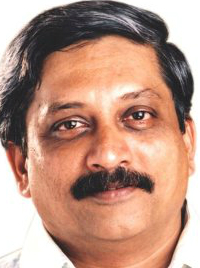 Mr. Manohar Parrikar is India’s Defense Minister and an active Member of the Bharatiya Janata Party (BJP). Before being inducted into the Council of Ministers of the Union Government on November 9th 2014, he was the Chief Minister of Goa, first from 2000 to 2005 (Goa’s first BJP chief minister), and later from March 2012 to November 2014. Mr. Parrikar represented the Panaji constituency in the Legislative Assembly of Goa when he was a player in state politics. He studied at Loyola High School, Margao. He completed his secondary education in Marathi and went on to graduate in metallurgical engineering from Indian Institute of Technology (IIT) Bombay in 1978. He is the first IIT graduate to become the Chief Minister of any Indian state. He was awarded by IIT Bombay with the Distinguished Alumnus Award in 2001.
Mr. Manohar Parrikar is India’s Defense Minister and an active Member of the Bharatiya Janata Party (BJP). Before being inducted into the Council of Ministers of the Union Government on November 9th 2014, he was the Chief Minister of Goa, first from 2000 to 2005 (Goa’s first BJP chief minister), and later from March 2012 to November 2014. Mr. Parrikar represented the Panaji constituency in the Legislative Assembly of Goa when he was a player in state politics. He studied at Loyola High School, Margao. He completed his secondary education in Marathi and went on to graduate in metallurgical engineering from Indian Institute of Technology (IIT) Bombay in 1978. He is the first IIT graduate to become the Chief Minister of any Indian state. He was awarded by IIT Bombay with the Distinguished Alumnus Award in 2001.
Dr. Iskander Rehman
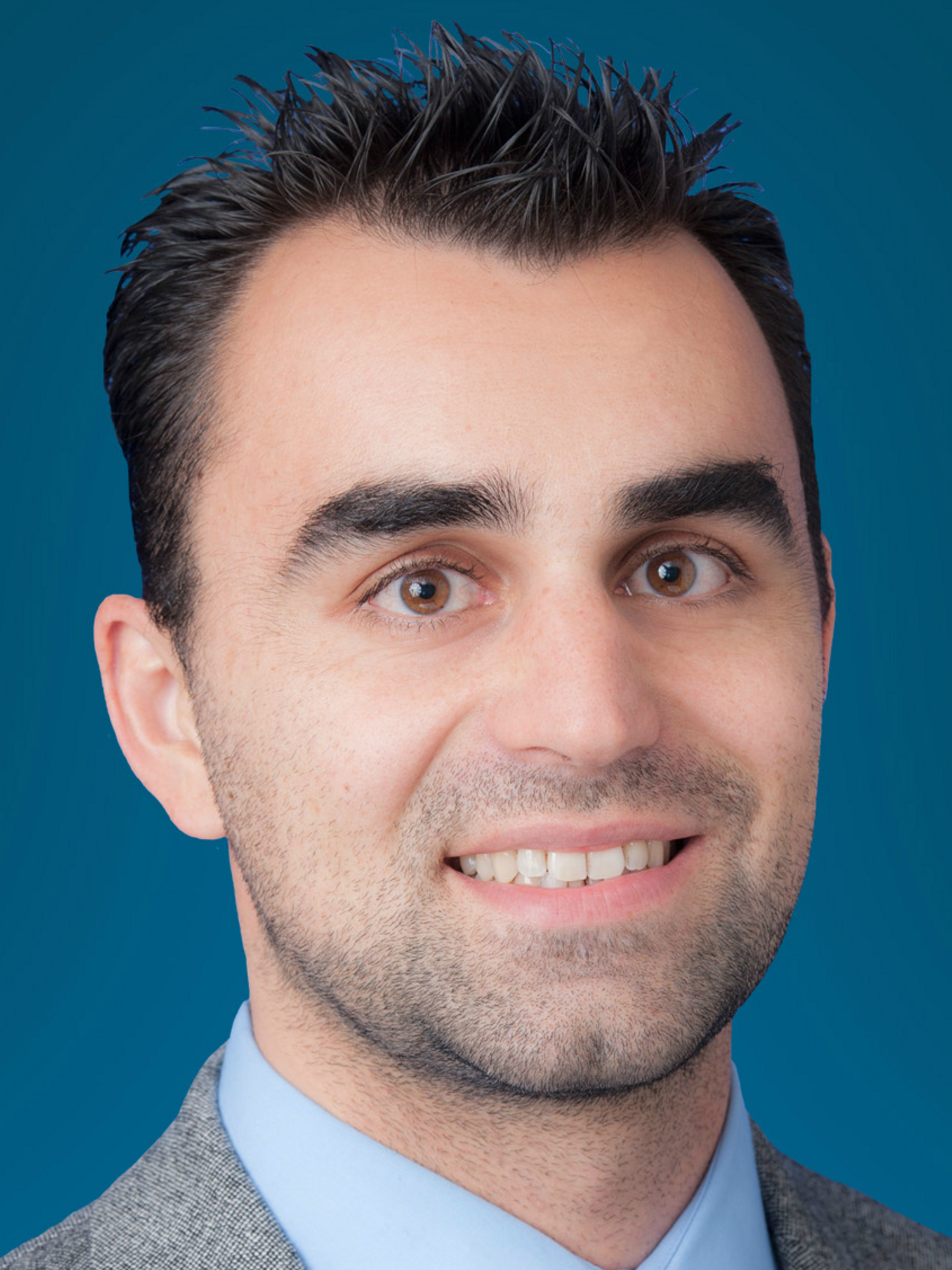 Dr. Iskander Rehman is a Non-Resident Fellow in the South Asia Center at the Atlantic Council. Prior to joining the Council, Dr. Rehman was a Research Fellow at the Center for Strategic and Budgetary Assessments (CSBA), where he focused on US grand strategy, Asian defense issues, and emerging security challenges in the Indo-Pacific. From July 2013 to July 2014, he was a Stanton Fellow in the Nuclear Policy Program at the Carnegie Endowment. A Franco-British citizen, Dr. Rehman has lived and worked in France, India and the United States. He holds a doctorate in political science, with a specialization in Asian studies, as well as a master’s degree in political science and a master’s degree in comparative politics, from the Institute of Political Sciences in Paris (also known as Sciences Po).
Dr. Iskander Rehman is a Non-Resident Fellow in the South Asia Center at the Atlantic Council. Prior to joining the Council, Dr. Rehman was a Research Fellow at the Center for Strategic and Budgetary Assessments (CSBA), where he focused on US grand strategy, Asian defense issues, and emerging security challenges in the Indo-Pacific. From July 2013 to July 2014, he was a Stanton Fellow in the Nuclear Policy Program at the Carnegie Endowment. A Franco-British citizen, Dr. Rehman has lived and worked in France, India and the United States. He holds a doctorate in political science, with a specialization in Asian studies, as well as a master’s degree in political science and a master’s degree in comparative politics, from the Institute of Political Sciences in Paris (also known as Sciences Po).
Amb. Francis J. Ricciardone
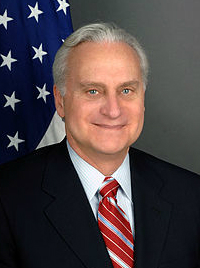 Amb. Francis J. Ricciardone is the Vice President and Director of the Atlantic Council’s Rafik Hariri Center for the Middle East. Before joining the Council he was a career Foreign Service officer in Washington, the Middle East, Europe, and Asia, including assignments as Ambassador to Turkey (2011-14), chargé d’affaires and Deputy Ambassador to Afghanistan (2009-10), Ambassador to Egypt (2005-8), and Ambassador to the Philippines and Palau (2002-5). As Secretary of State Madeleine Albright’s Special Coordinator for the transition of Iraq (1999-2001), Ambassador Ricciardone supported the reestablishment of the democratic opposition to the Saddam Hussein regime. Secretary of State Colin Powell assigned him in 2004 to organize the new US Embassy in Baghdad to replace the Coalition Provisional Authority. He worked with Egyptian, Israeli, and other international military forces as Chief of the Civilian Observer Unit of the Multinational Force and Observers in Egypt’s Sinai Desert (1989-91). In 1993 he served as Political Advisor to US and Turkish generals commanding Operation Northern Watch in northern Iraq, based in Turkey. Before joining the Foreign Service, Ambassador Ricciardone held a Fulbright Scholarship in Italy, and taught at international schools in Italy and in Iran. He graduated summa cum laude from Dartmouth College in 1973. He speaks Italian, Turkish, Arabic, and French. He is married to Dr. Marie Ricciardone, a molecular biologist.
Amb. Francis J. Ricciardone is the Vice President and Director of the Atlantic Council’s Rafik Hariri Center for the Middle East. Before joining the Council he was a career Foreign Service officer in Washington, the Middle East, Europe, and Asia, including assignments as Ambassador to Turkey (2011-14), chargé d’affaires and Deputy Ambassador to Afghanistan (2009-10), Ambassador to Egypt (2005-8), and Ambassador to the Philippines and Palau (2002-5). As Secretary of State Madeleine Albright’s Special Coordinator for the transition of Iraq (1999-2001), Ambassador Ricciardone supported the reestablishment of the democratic opposition to the Saddam Hussein regime. Secretary of State Colin Powell assigned him in 2004 to organize the new US Embassy in Baghdad to replace the Coalition Provisional Authority. He worked with Egyptian, Israeli, and other international military forces as Chief of the Civilian Observer Unit of the Multinational Force and Observers in Egypt’s Sinai Desert (1989-91). In 1993 he served as Political Advisor to US and Turkish generals commanding Operation Northern Watch in northern Iraq, based in Turkey. Before joining the Foreign Service, Ambassador Ricciardone held a Fulbright Scholarship in Italy, and taught at international schools in Italy and in Iran. He graduated summa cum laude from Dartmouth College in 1973. He speaks Italian, Turkish, Arabic, and French. He is married to Dr. Marie Ricciardone, a molecular biologist.
Mr. Richard Rossow
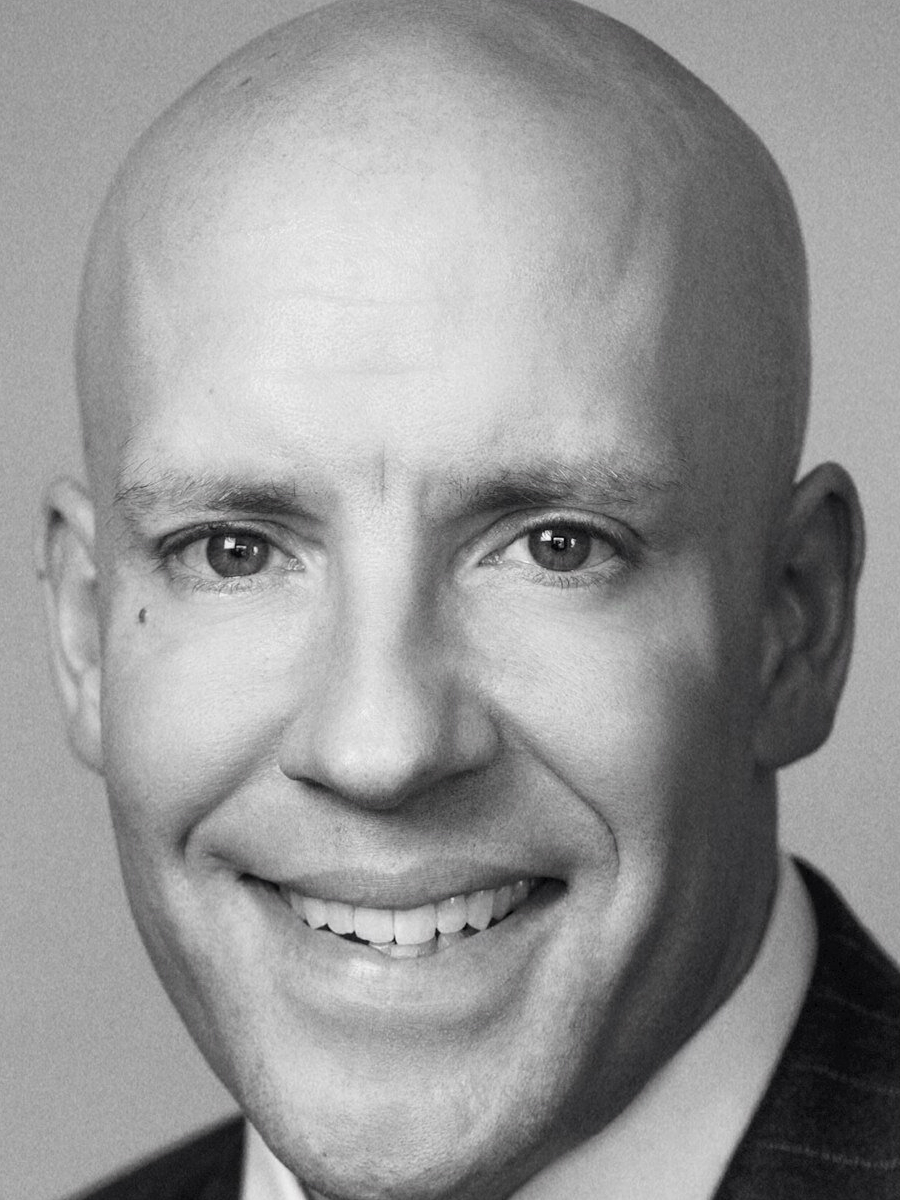 Mr. Richard Rossow is a Senior Fellow and holds the Wadhwani Chair in US-India Policy Studies at the Center for Strategic and International Studies (CSIS). In this role he helps frame and shape policies to promote greater business and economic engagement between the two countries. He joined CSIS in 2014, having spent the last 16 years working in a variety of capacities to strengthen the partnership between the United States and India. Prior to CSIS, he served as Director for South Asia at McLarty Associates, leading the firm’s work for clients in India and the neighboring region. From 2008 to 2012, Mr. Rossow was with New York Life Insurance Company, most recently as head of International Governmental Affairs, where he developed strategic plans for the company’s public policy and global mergers and acquisitions work. From 1998 to 2008, Mr. Rossow served as deputy director of the US-India Business Council (USIBC), the world’s leading advocacy group on behalf of strengthening economic ties between the US and India. While at USIBC, he managed the Council’s policy groups in the energy, information technology, insurance, media and entertainment, and telecommunications sectors. Mr. Rossow received his B.A. from Grand Valley State University in Michigan.
Mr. Richard Rossow is a Senior Fellow and holds the Wadhwani Chair in US-India Policy Studies at the Center for Strategic and International Studies (CSIS). In this role he helps frame and shape policies to promote greater business and economic engagement between the two countries. He joined CSIS in 2014, having spent the last 16 years working in a variety of capacities to strengthen the partnership between the United States and India. Prior to CSIS, he served as Director for South Asia at McLarty Associates, leading the firm’s work for clients in India and the neighboring region. From 2008 to 2012, Mr. Rossow was with New York Life Insurance Company, most recently as head of International Governmental Affairs, where he developed strategic plans for the company’s public policy and global mergers and acquisitions work. From 1998 to 2008, Mr. Rossow served as deputy director of the US-India Business Council (USIBC), the world’s leading advocacy group on behalf of strengthening economic ties between the US and India. While at USIBC, he managed the Council’s policy groups in the energy, information technology, insurance, media and entertainment, and telecommunications sectors. Mr. Rossow received his B.A. from Grand Valley State University in Michigan.
Mr. Peter Rowe
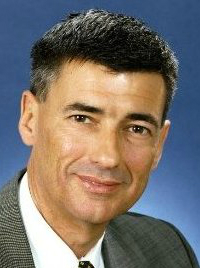 Mr. Peter Rowe is the Former Acting Deputy Secretary of the Department of Foreign Affairs and Trade for the Government of Australia. Mr. Rowe also held the post of Ambassador to the Republic of Korea. Before that, he was the Deputy Head of Mission at the Australian Embassy in Jakarta, a position he held from 2003 to 2005. In Canberra, Mr. Rowe was Assistant Secretary, North East Asia Branch (2002-03), Assistant Secretary, East Asia Branch (2001-02), Director, China, Mongolia Section (1992-95), and Director, Hong Kong, Macau, Taiwan Section (1991-92). From 1986 to 1991, Mr. Rowe worked in the Office of National Assessments where he held responsibility for China and Korea and subsequently acted as Head of the Asia Branch. Overseas, Mr. Rowe has served as High Commissioner to Sri Lanka (1999-2001), Minister and Deputy Head of Mission, Australian Embassy, Seoul (1995-98), Second Secretary, Australian Embassy, Seoul (1983-86), and Second Secretary, Beijing (1978-81). From 1981 to 1982 Mr. Rowe worked on secondment to the New Zealand Ministry of Foreign Affairs, Wellington. Mr. Rowe was born in Sydney in 1950. He holds a Bachelor of Arts degree from the University of Sydney. He speaks Chinese and Korean.
Mr. Peter Rowe is the Former Acting Deputy Secretary of the Department of Foreign Affairs and Trade for the Government of Australia. Mr. Rowe also held the post of Ambassador to the Republic of Korea. Before that, he was the Deputy Head of Mission at the Australian Embassy in Jakarta, a position he held from 2003 to 2005. In Canberra, Mr. Rowe was Assistant Secretary, North East Asia Branch (2002-03), Assistant Secretary, East Asia Branch (2001-02), Director, China, Mongolia Section (1992-95), and Director, Hong Kong, Macau, Taiwan Section (1991-92). From 1986 to 1991, Mr. Rowe worked in the Office of National Assessments where he held responsibility for China and Korea and subsequently acted as Head of the Asia Branch. Overseas, Mr. Rowe has served as High Commissioner to Sri Lanka (1999-2001), Minister and Deputy Head of Mission, Australian Embassy, Seoul (1995-98), Second Secretary, Australian Embassy, Seoul (1983-86), and Second Secretary, Beijing (1978-81). From 1981 to 1982 Mr. Rowe worked on secondment to the New Zealand Ministry of Foreign Affairs, Wellington. Mr. Rowe was born in Sydney in 1950. He holds a Bachelor of Arts degree from the University of Sydney. He speaks Chinese and Korean.
Mr. Sushant Sareen
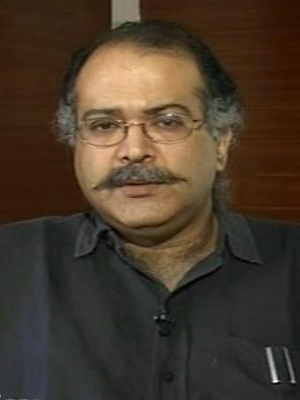 Mr. Sushant Sareen is a Senior Fellow at the Vivekananda International Foundation. He did his Master’s in Economics from the Delhi School of Economics and later qualified for the Indian Civil Service, after that he joined the Indian Railway Traffic Service in 1993. A year later he resigned from Government and joined Public Opinion Trends, a news agency that monitors news and developments in South Asia. Since then he has been a close observer of the political situation in South Asia, specializing on Pakistan and by extension, India-Pakistan relations. He was the Executive Editor at Public Opinion Trends. He has also been an Associate Editor at southasianmedia.net, a South Asian news portal being run by the South Asian Free Media Association (SAFMA). Mr. Sareen is also a founding member of SAFMA. For a short while he was General Secretary, SAFMA India and is currently a member of the SAFMA India Executive Board. Between 2002 and 2004, he was the Honorary Director of the Pakistan Centre at the Observer Research Foundation. He has also been associated as a Consultant on the Pakistan Project of the IDSA. He is the author of the book: The Jihad Factory – Pakistan’s Islamic Revolution in the Making. He has also contributed chapters in books published by the Jamia Milia Islamia University, New Delhi and Jammu University. He has also contributed papers on the situation in Pakistan and on India-Pakistan peace process for journals like World Focus, AGNI and Dialogue. He has written columns for a number of Indian newspapers including The Pioneer, Tehelka, Sakaal Times, rediff.com, India Abroad, Ajit, The Tribune, Deccan Herald, and New Indian Express. Mr. Sareem is also a regular feature on various TV and radio networks, including Times Now, CNN-IBN, NDTV India, Headlines Today, NewsX, Aaj Tak, ABP News, IBN7, ANI, Radio Pakistan, PTV, Lok Sabha TV, and DD News.
Mr. Sushant Sareen is a Senior Fellow at the Vivekananda International Foundation. He did his Master’s in Economics from the Delhi School of Economics and later qualified for the Indian Civil Service, after that he joined the Indian Railway Traffic Service in 1993. A year later he resigned from Government and joined Public Opinion Trends, a news agency that monitors news and developments in South Asia. Since then he has been a close observer of the political situation in South Asia, specializing on Pakistan and by extension, India-Pakistan relations. He was the Executive Editor at Public Opinion Trends. He has also been an Associate Editor at southasianmedia.net, a South Asian news portal being run by the South Asian Free Media Association (SAFMA). Mr. Sareen is also a founding member of SAFMA. For a short while he was General Secretary, SAFMA India and is currently a member of the SAFMA India Executive Board. Between 2002 and 2004, he was the Honorary Director of the Pakistan Centre at the Observer Research Foundation. He has also been associated as a Consultant on the Pakistan Project of the IDSA. He is the author of the book: The Jihad Factory – Pakistan’s Islamic Revolution in the Making. He has also contributed chapters in books published by the Jamia Milia Islamia University, New Delhi and Jammu University. He has also contributed papers on the situation in Pakistan and on India-Pakistan peace process for journals like World Focus, AGNI and Dialogue. He has written columns for a number of Indian newspapers including The Pioneer, Tehelka, Sakaal Times, rediff.com, India Abroad, Ajit, The Tribune, Deccan Herald, and New Indian Express. Mr. Sareem is also a regular feature on various TV and radio networks, including Times Now, CNN-IBN, NDTV India, Headlines Today, NewsX, Aaj Tak, ABP News, IBN7, ANI, Radio Pakistan, PTV, Lok Sabha TV, and DD News.
Lt. Gen. (Retd.) Ravi Sawhney (PVSM, AVSM)
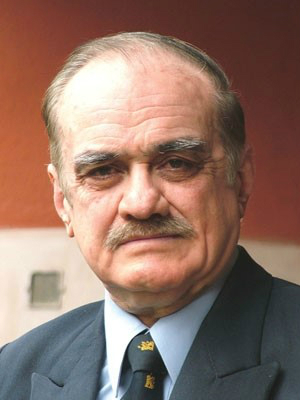 Lt. Gen. (Retd.) Ravi Sawhney (PVSM, AVSM) is a Distinguished Fellow at the Vivekananda International Foundation. He retired as the Deputy Chief of the Army Staff. Lt. Gen. Sawhney is a post graduate in Defence and Security Planning from the Royal College of Defence Studies, London prior to which he attended Defence Services Staff College at Wellington and Long Defence Service Management Course at the College of Defence Management, India. He commanded an Infantry Battalion, Division and a Corps during his military career and subsequently served as the Director General of Military Intelligence. During his Army service of approximately 40 years, he held important appointments in staff and command of different combat units and field formations. His duties encompassed management and planning for different types of situations in varied terrain conditions with special emphasis on counter terrorism and counter insurgency operations. He was involved with conceptual development of strategies at senior levels as the Director of Military Intelligence and was also responsible for the overall coordination of the deployment of Indian Army troops at various UN missions as a Deputy Chief of Army Staff. He has been awarded the PVSM and AVSM for exceptional devotion to his duties. Post retirement, he was deputed by the Government of India to monitor the situation in Afghanistan, a country which he has visited every year since 2002. Considered an area specialist on this country, he has shared his thoughts and in-depth knowledge of Afghan crisis with a number of think tanks and in different seminars the world over. He regularly contributes articles to the journals on strategic subjects and is on the lecture circuit of Army War College, IDSA, USI, NDC etc.
Lt. Gen. (Retd.) Ravi Sawhney (PVSM, AVSM) is a Distinguished Fellow at the Vivekananda International Foundation. He retired as the Deputy Chief of the Army Staff. Lt. Gen. Sawhney is a post graduate in Defence and Security Planning from the Royal College of Defence Studies, London prior to which he attended Defence Services Staff College at Wellington and Long Defence Service Management Course at the College of Defence Management, India. He commanded an Infantry Battalion, Division and a Corps during his military career and subsequently served as the Director General of Military Intelligence. During his Army service of approximately 40 years, he held important appointments in staff and command of different combat units and field formations. His duties encompassed management and planning for different types of situations in varied terrain conditions with special emphasis on counter terrorism and counter insurgency operations. He was involved with conceptual development of strategies at senior levels as the Director of Military Intelligence and was also responsible for the overall coordination of the deployment of Indian Army troops at various UN missions as a Deputy Chief of Army Staff. He has been awarded the PVSM and AVSM for exceptional devotion to his duties. Post retirement, he was deputed by the Government of India to monitor the situation in Afghanistan, a country which he has visited every year since 2002. Considered an area specialist on this country, he has shared his thoughts and in-depth knowledge of Afghan crisis with a number of think tanks and in different seminars the world over. He regularly contributes articles to the journals on strategic subjects and is on the lecture circuit of Army War College, IDSA, USI, NDC etc.
Dr. Harinder Sekhon
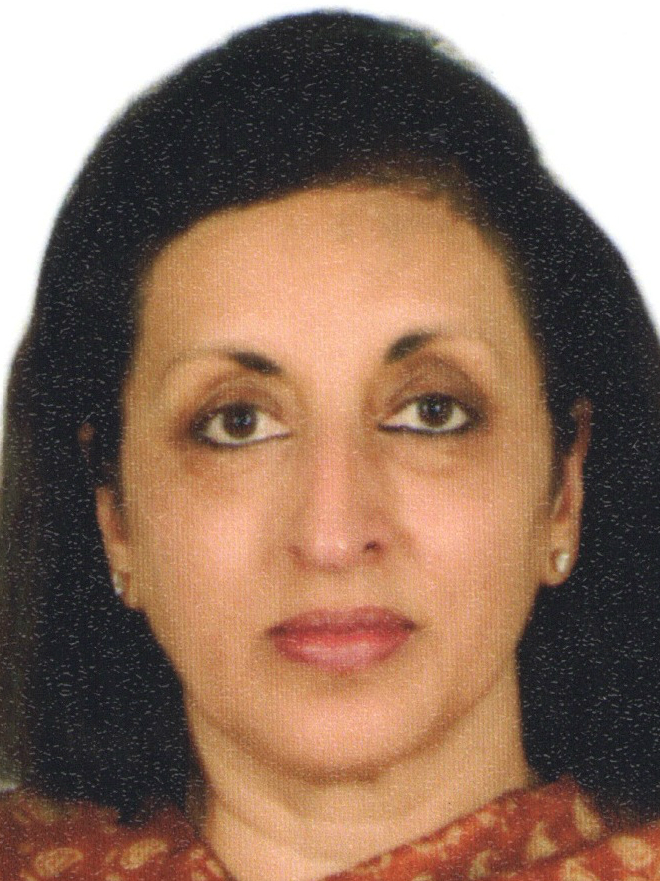 Dr. Harinder Sekhon is a Senior Fellow at the Vivekananda International Foundation. Her areas of expertise are US-India Relations, US policy and strategy in Asia, and Security architecture in South Asia, East Asia and the Indo-Pacific. She was also a Senior Fellow at the Observer Research Foundation (ORF) in New Delhi. Before joining ORF in 2004, she worked for the National Security Council Secretariat of the Government of India, analyzing data and preparing assessments on strategic issues for policy implementation. She has been a Post-Doctoral Research Fellow at the Centre of Contemporary Studies, Nehru Memorial Museum and Library, and a Senior Lecturer in History at Punjab University, Chandigarh. She has over two decades of research, writing and teaching experience on various aspects of US-India relations and US policy and strategy in Asia. She wrote the widely read book Five Decades of Indo-US Relations (UBSPD, 2002) and India and the United States – Breakthroughs, Prospects and Challenges Ahead (Macmillan, 2008). Dr. Sekhon continues to be a highly regarded voice in her field.
Dr. Harinder Sekhon is a Senior Fellow at the Vivekananda International Foundation. Her areas of expertise are US-India Relations, US policy and strategy in Asia, and Security architecture in South Asia, East Asia and the Indo-Pacific. She was also a Senior Fellow at the Observer Research Foundation (ORF) in New Delhi. Before joining ORF in 2004, she worked for the National Security Council Secretariat of the Government of India, analyzing data and preparing assessments on strategic issues for policy implementation. She has been a Post-Doctoral Research Fellow at the Centre of Contemporary Studies, Nehru Memorial Museum and Library, and a Senior Lecturer in History at Punjab University, Chandigarh. She has over two decades of research, writing and teaching experience on various aspects of US-India relations and US policy and strategy in Asia. She wrote the widely read book Five Decades of Indo-US Relations (UBSPD, 2002) and India and the United States – Breakthroughs, Prospects and Challenges Ahead (Macmillan, 2008). Dr. Sekhon continues to be a highly regarded voice in her field.
Mr. Phil Shaw
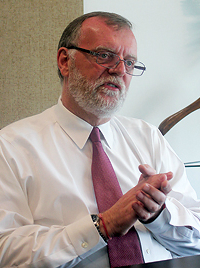 Mr. Phil Shaw is the Chief Executive of Lockheed Martin, India Private Ltd. Mr. Shaw was named Chief Executive on March 4, 2013. In this position, he is responsible for all Lockheed Martin corporate business in the South Asia region that includes India, Sri Lanka, Nepal and the Maldives. Mr. Shaw joined Lockheed Martin in February 2003 and has worked in several Business Development roles for Lockheed Martin Systems Integration – Owego, supporting programs in the US as well as overseas; he has led the business development efforts in the UK as the Director for Lockheed Martin UK Integrated Systems, and for the last few years prior to this appointment, has led international business development efforts for MH60R helicopters in South East Asia, the Americas and Europe; and latterly was responsible for all of Lockheed Martin Missions Systems and Training business development activity in South Asia and the Americas. Mr. Shaw retired from the Royal Navy in 2003, in the rank of Commander, after 20 years’ service as a helicopter pilot and warfare officer. He served in several frigates and aircraft carriers and flew a variety of helicopter types culminating in command of the first Royal Navy Merlin (EH101) squadron where he was responsible for the introduction into service of a new aircraft type. Along with his front line appointments, he also served as the appointer and career manager for 700 Royal Navy pilots and his last job in service was supporting defense sales as the aviation advisor in South East Asia, Australia and the Americas to the UK MoD’s (Ministry of Defense) Defense Export & Support Organization. Mr. Shaw was awarded the Member of the Order of the British Empire (MBE) medal in the Queen’s New Year’s honors list in 2000 and attended his investiture by Queen Elizabeth II in the same year at Buckingham Palace. Mr. Shaw was born in Plymouth and raised in Cambridge in the United Kingdom. He earned a B.Sc. in Electronic and Electrical Engineering from Manchester University in 1982 and an M.A. in Defense Studies from Kings College London in 1994 while attending military staff training at Royal Naval Staff College Greenwich. Mr. Shaw is single and will be based in Delhi during this appointment while retaining his residence in Washington, DC.
Mr. Phil Shaw is the Chief Executive of Lockheed Martin, India Private Ltd. Mr. Shaw was named Chief Executive on March 4, 2013. In this position, he is responsible for all Lockheed Martin corporate business in the South Asia region that includes India, Sri Lanka, Nepal and the Maldives. Mr. Shaw joined Lockheed Martin in February 2003 and has worked in several Business Development roles for Lockheed Martin Systems Integration – Owego, supporting programs in the US as well as overseas; he has led the business development efforts in the UK as the Director for Lockheed Martin UK Integrated Systems, and for the last few years prior to this appointment, has led international business development efforts for MH60R helicopters in South East Asia, the Americas and Europe; and latterly was responsible for all of Lockheed Martin Missions Systems and Training business development activity in South Asia and the Americas. Mr. Shaw retired from the Royal Navy in 2003, in the rank of Commander, after 20 years’ service as a helicopter pilot and warfare officer. He served in several frigates and aircraft carriers and flew a variety of helicopter types culminating in command of the first Royal Navy Merlin (EH101) squadron where he was responsible for the introduction into service of a new aircraft type. Along with his front line appointments, he also served as the appointer and career manager for 700 Royal Navy pilots and his last job in service was supporting defense sales as the aviation advisor in South East Asia, Australia and the Americas to the UK MoD’s (Ministry of Defense) Defense Export & Support Organization. Mr. Shaw was awarded the Member of the Order of the British Empire (MBE) medal in the Queen’s New Year’s honors list in 2000 and attended his investiture by Queen Elizabeth II in the same year at Buckingham Palace. Mr. Shaw was born in Plymouth and raised in Cambridge in the United Kingdom. He earned a B.Sc. in Electronic and Electrical Engineering from Manchester University in 1982 and an M.A. in Defense Studies from Kings College London in 1994 while attending military staff training at Royal Naval Staff College Greenwich. Mr. Shaw is single and will be based in Delhi during this appointment while retaining his residence in Washington, DC.
Amb. Kanwal Sibal
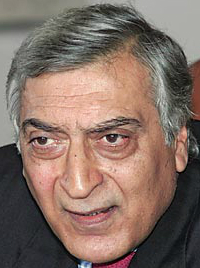 Amb. Kanwal Sibal is the Former Foreign Secretary of India, he held the post from July 2002 to November 2003. Currently, he is the Dean of the Center for International Relations and Diplomacy at the Vivekananda International Foundation. His diplomatic career spans 41 years. He was India’s Ambassador to Turkey (1989-1992), Deputy Chief of Mission in the US (1992-1995) with the rank of Ambassador, Ambassador to Egypt (1995-1998), to France (1998-2002), and to Russia (2004-2007). He was a member of India’s National Security Advisory Board from November 2008 to November 2010. Ambassador Sibal writes regularly for national journals and periodicals on international affairs, and is a highly influential voice in his field.
Amb. Kanwal Sibal is the Former Foreign Secretary of India, he held the post from July 2002 to November 2003. Currently, he is the Dean of the Center for International Relations and Diplomacy at the Vivekananda International Foundation. His diplomatic career spans 41 years. He was India’s Ambassador to Turkey (1989-1992), Deputy Chief of Mission in the US (1992-1995) with the rank of Ambassador, Ambassador to Egypt (1995-1998), to France (1998-2002), and to Russia (2004-2007). He was a member of India’s National Security Advisory Board from November 2008 to November 2010. Ambassador Sibal writes regularly for national journals and periodicals on international affairs, and is a highly influential voice in his field.
Vice Admiral (Retd.) Anup Singh (AVSM, NSM)
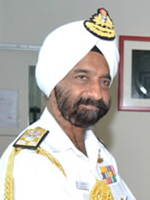 Vice Admiral (Retd.) Anup Singh (AVSM, NSM) is the Former Flag Officer Commanding-in-Chief, Eastern Naval Command, India. He was commissioned in the Indian Navy on July 1st 1973. During his career, he commanded four ships of different classes, the Indian Naval Ships Matanga, Veer, Ranvir and Delhi. In the case of two of these ships, he was also selected to commission them. These were the INS Veer, a first of the new project missile vessel from the Soviet Union and INS Delhi, the first indigenously designed and indigenously built Destroyer of 6700 ton displacement. For INS Veer, he spent a year under training in the erstwhile USSR. For INS Delhi, he oversaw the final stages of her construction at the MDL for nearly a year before commissioning. At the pinnacle of seagoing assignments was the command of the Western Fleet, i.e. Flag Officer Commanding Western Fleet. He held this prestigious operational appointment in 2006-07, wherein he led Operation SUKOON, the evacuation of civilians from war-torn Lebanon, in July 2006, moving his fleet repeatedly in and out of Beirut, Lebanon (under war) to Larnaca, Cyprus. Important assignments ashore included Director of Naval Plans (Force Structure and Defense Budget Planning), Director of Personnel (Human Resource Development and Management), Assistant Controller of Warship Production/Acquisitions and Carrier Projects, Chief Instructor (Navy) at the Defense Services Staff College; Chief of Staff, Western Naval Command, Assistant Chief of Naval Staff (Air), Deputy Chief of Naval Staff; Deputy Chief of Integrated Defense Staff, and finally as the Flag Officer Commanding-in-Chief, Eastern Naval Command from Aug. 2009 to Oct. 2011. Vice Admiral Singh has been a keen sportsman and adventurer. His interests include golf, riding and sailing. He was the Sailing Master of the first ever square-rigged Sail Training Vessel in India, named ‘Varuna’, in 1980-82. He also skippered the Naval Yacht ‘Samudra’ for her Pacific Crossing during the Tri Service round-the-world voyage in 1989.
Vice Admiral (Retd.) Anup Singh (AVSM, NSM) is the Former Flag Officer Commanding-in-Chief, Eastern Naval Command, India. He was commissioned in the Indian Navy on July 1st 1973. During his career, he commanded four ships of different classes, the Indian Naval Ships Matanga, Veer, Ranvir and Delhi. In the case of two of these ships, he was also selected to commission them. These were the INS Veer, a first of the new project missile vessel from the Soviet Union and INS Delhi, the first indigenously designed and indigenously built Destroyer of 6700 ton displacement. For INS Veer, he spent a year under training in the erstwhile USSR. For INS Delhi, he oversaw the final stages of her construction at the MDL for nearly a year before commissioning. At the pinnacle of seagoing assignments was the command of the Western Fleet, i.e. Flag Officer Commanding Western Fleet. He held this prestigious operational appointment in 2006-07, wherein he led Operation SUKOON, the evacuation of civilians from war-torn Lebanon, in July 2006, moving his fleet repeatedly in and out of Beirut, Lebanon (under war) to Larnaca, Cyprus. Important assignments ashore included Director of Naval Plans (Force Structure and Defense Budget Planning), Director of Personnel (Human Resource Development and Management), Assistant Controller of Warship Production/Acquisitions and Carrier Projects, Chief Instructor (Navy) at the Defense Services Staff College; Chief of Staff, Western Naval Command, Assistant Chief of Naval Staff (Air), Deputy Chief of Naval Staff; Deputy Chief of Integrated Defense Staff, and finally as the Flag Officer Commanding-in-Chief, Eastern Naval Command from Aug. 2009 to Oct. 2011. Vice Admiral Singh has been a keen sportsman and adventurer. His interests include golf, riding and sailing. He was the Sailing Master of the first ever square-rigged Sail Training Vessel in India, named ‘Varuna’, in 1980-82. He also skippered the Naval Yacht ‘Samudra’ for her Pacific Crossing during the Tri Service round-the-world voyage in 1989.
Amb. Sanjay Singh
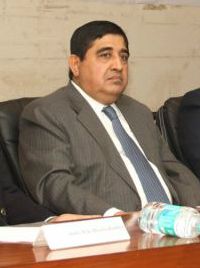 Amb. Sanjay Singh is the Former Secretary (East) of the Ministry of External Affairs, India. Ambassador Singh (Indian Foreign Service 1976 Batch) assumed the office of Secretary (East) on March 18, 2011. He was last posted as Ambassador to Iran in Tehran. Prior to that position, he served as Additional Secretary to the Ministry of External Affairs in charge of the Gulf division. Ambassador Singh has delivered many speeches and chaired many panels with the Heads of Governments of India’s neighbors in Asia and the Middle East. He continues to be an influential and respected voice in his field, and continues to produce renowned work on India’s National Security and Foreign Affairs. Ambassador Singh is married to India’s Former Foreign Secretary Ambassador Sujatha Singh, who served from 2013-2015 and performed stellar work in Europe, Australia and several regional nations.
Amb. Sanjay Singh is the Former Secretary (East) of the Ministry of External Affairs, India. Ambassador Singh (Indian Foreign Service 1976 Batch) assumed the office of Secretary (East) on March 18, 2011. He was last posted as Ambassador to Iran in Tehran. Prior to that position, he served as Additional Secretary to the Ministry of External Affairs in charge of the Gulf division. Ambassador Singh has delivered many speeches and chaired many panels with the Heads of Governments of India’s neighbors in Asia and the Middle East. He continues to be an influential and respected voice in his field, and continues to produce renowned work on India’s National Security and Foreign Affairs. Ambassador Singh is married to India’s Former Foreign Secretary Ambassador Sujatha Singh, who served from 2013-2015 and performed stellar work in Europe, Australia and several regional nations.
Dr. Ashley J. Tellis
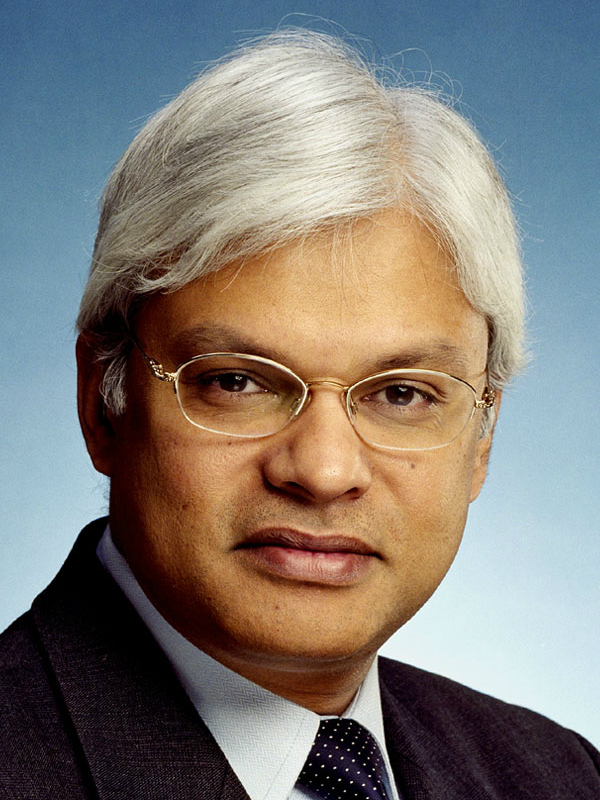 Dr. Ashley J. Tellis is a Senior Associate at the Carnegie Endowment for International Peace specializing in international security, defense, and Asian strategic issues. While on assignment to the US Department of State as Senior Adviser to the Undersecretary of State for Political Affairs, he was intimately involved in negotiating the civil nuclear agreement with India. Previously, he was commissioned into the Foreign Service and served as Senior Adviser to the Ambassador at the US Embassy in New Delhi. He also served on the National Security Council staff as Special Assistant to the President and Senior Director for strategic planning and Southwest Asia. Prior to his government service, Dr. Tellis was Senior Policy Analyst at the RAND Corporation and Professor of Policy Analysis at the RAND Graduate School. He is the author of India’s Emerging Nuclear Posture (RAND, 2001) and co-author of Interpreting China’s Grand Strategy: Past, Present, and Future (RAND, 2000). He is the Research Director of the Strategic Asia Program at the National Bureau of Asian Research and Co-Editor of the program’s eleven most recent annual volumes, including Strategic Asia 2014–15: U.S. Alliances and Partnerships at the Center of Global Power. In addition to numerous Carnegie and RAND reports, his academic publications have appeared in many edited volumes and journals, and he is frequently called to testify before Congress. Dr. Tellis is a member of several professional organizations related to defense and international studies including the Council on Foreign Relations, the International Institute of Strategic Studies, the United States Naval Institute, and the Navy League of the United States.
Dr. Ashley J. Tellis is a Senior Associate at the Carnegie Endowment for International Peace specializing in international security, defense, and Asian strategic issues. While on assignment to the US Department of State as Senior Adviser to the Undersecretary of State for Political Affairs, he was intimately involved in negotiating the civil nuclear agreement with India. Previously, he was commissioned into the Foreign Service and served as Senior Adviser to the Ambassador at the US Embassy in New Delhi. He also served on the National Security Council staff as Special Assistant to the President and Senior Director for strategic planning and Southwest Asia. Prior to his government service, Dr. Tellis was Senior Policy Analyst at the RAND Corporation and Professor of Policy Analysis at the RAND Graduate School. He is the author of India’s Emerging Nuclear Posture (RAND, 2001) and co-author of Interpreting China’s Grand Strategy: Past, Present, and Future (RAND, 2000). He is the Research Director of the Strategic Asia Program at the National Bureau of Asian Research and Co-Editor of the program’s eleven most recent annual volumes, including Strategic Asia 2014–15: U.S. Alliances and Partnerships at the Center of Global Power. In addition to numerous Carnegie and RAND reports, his academic publications have appeared in many edited volumes and journals, and he is frequently called to testify before Congress. Dr. Tellis is a member of several professional organizations related to defense and international studies including the Council on Foreign Relations, the International Institute of Strategic Studies, the United States Naval Institute, and the Navy League of the United States.
Amb. Richard Verma
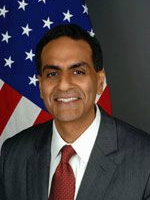 Amb. Richard Verma is the US Ambassador to India. Ambassador Richard Verma is a former Assistant Secretary of State for Legislative Affairs. From 2009-2011, he served as a Principal Advisor to Secretary Clinton. He led the State Department’s budget and policy efforts on Capitol Hill, handled more than 200 Senate confirmations, and managed several major congressional investigations. He was also the Administration’s lead negotiator with Congress on Iran sanctions and the ratification of the new START Treaty. He most recently served as a senior counselor at both Steptoe & Johnson and the Albright Stonebridge Group, where his practice focused on international law and global regulatory compliance. Earlier in his career, Ambassador Verma served in the Senate as the senior national security advisor to Senate Majority Leader Harry Reid. He also worked in the House of Representatives for Defense Appropriations Committee Chairman Jack Murtha. Formerly a country director for the National Democratic Institute for International Affairs in Eastern Europe, Ambassador Verma was a senior National Security Fellow at the Center for American Progress, a member of the Council on Foreign Relations, and served on the boards of the Clinton Foundation, Human Rights First, and the National Democratic Institute. Ambassador Verma served on active duty in the US Air Force from 1994 to 1998. He received his LL.M. with distinction from the Georgetown University Law Center, and his J.D. cum laude from American University’s Washington College of Law. He holds a B.S. from Lehigh University.
Amb. Richard Verma is the US Ambassador to India. Ambassador Richard Verma is a former Assistant Secretary of State for Legislative Affairs. From 2009-2011, he served as a Principal Advisor to Secretary Clinton. He led the State Department’s budget and policy efforts on Capitol Hill, handled more than 200 Senate confirmations, and managed several major congressional investigations. He was also the Administration’s lead negotiator with Congress on Iran sanctions and the ratification of the new START Treaty. He most recently served as a senior counselor at both Steptoe & Johnson and the Albright Stonebridge Group, where his practice focused on international law and global regulatory compliance. Earlier in his career, Ambassador Verma served in the Senate as the senior national security advisor to Senate Majority Leader Harry Reid. He also worked in the House of Representatives for Defense Appropriations Committee Chairman Jack Murtha. Formerly a country director for the National Democratic Institute for International Affairs in Eastern Europe, Ambassador Verma was a senior National Security Fellow at the Center for American Progress, a member of the Council on Foreign Relations, and served on the boards of the Clinton Foundation, Human Rights First, and the National Democratic Institute. Ambassador Verma served on active duty in the US Air Force from 1994 to 1998. He received his LL.M. with distinction from the Georgetown University Law Center, and his J.D. cum laude from American University’s Washington College of Law. He holds a B.S. from Lehigh University.
Gen. Nirmal Chander Vij, (PVSM, UYSM, AVSM)
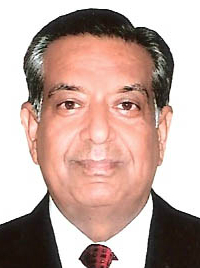 Gen. Nirmal Chander Vij, (PVSM, UYSM, AVSM) is the Director of the Vivekananda International Foundation think tank in New Delhi. He joined the National Defence Academy (NDA) in 1959. He was commissioned into the Dogra Regiment on 11 December 1962. Within weeks of his commissioning, he saw action in the Walong sector in the 1962 Indo-China War. Since then he has served in the eastern sector six times, the last time being as the General Officer Commanding of the IV Corps. General Vij has served as the General Staff Officer of an Infantry Division, a Director in the Military Operations Directorate as a Colonel and Deputy Director General of Perspective Planning (Strategic Planning) as a Brigadier at the Army HQ in New Delhi. General Vij served as the Major General, General Staff at the Western Command in Chandimandir, Chandigarh (Punjab) and during the 1999 Kargil War, he served as the Director General Military Operations (DGMO). For his services as the DGMO, he was awarded the Uttam Yudh Seva Medal (UYSM). He was involved with the planning and execution of Operation Khukri to extricate trapped Indian peacekeeping troops in Sierra Leone. The formations he has commanded include a mountain brigade involved in active counter-insurgency operations in the north east, an elite RAPID (Reorganized Army Plains Infantry Division) unit, the one Strike Corps based at Bhopal, Madhya Pradesh and the IV Corps based at Tezpur, Assam. He is also a recipient of the Param Vishisht Seva Medal (PVSM). On 1 October 2000, Vij was appointed as the GOC of Southern Command at Pune and led the Army’s rescue efforts during the 2001 Gujarat earthquake. In October 2001, he was appointed as the Vice Chief of Army Staff (VCOAS) in New Delhi, and in January 2002 he was appointed as the 10th Colonel of the Dogra Regiment and the Dogra Scouts. He was appointed as Chairman to the Chiefs of Staff Committee (COSC) on 1 January 2005. He is married to Mrs. Rita Vij and they have a son, Nalin, who is a software engineer in the United States. General Vij retired on 31 January 2005, after completing more than 42 years of service.
Gen. Nirmal Chander Vij, (PVSM, UYSM, AVSM) is the Director of the Vivekananda International Foundation think tank in New Delhi. He joined the National Defence Academy (NDA) in 1959. He was commissioned into the Dogra Regiment on 11 December 1962. Within weeks of his commissioning, he saw action in the Walong sector in the 1962 Indo-China War. Since then he has served in the eastern sector six times, the last time being as the General Officer Commanding of the IV Corps. General Vij has served as the General Staff Officer of an Infantry Division, a Director in the Military Operations Directorate as a Colonel and Deputy Director General of Perspective Planning (Strategic Planning) as a Brigadier at the Army HQ in New Delhi. General Vij served as the Major General, General Staff at the Western Command in Chandimandir, Chandigarh (Punjab) and during the 1999 Kargil War, he served as the Director General Military Operations (DGMO). For his services as the DGMO, he was awarded the Uttam Yudh Seva Medal (UYSM). He was involved with the planning and execution of Operation Khukri to extricate trapped Indian peacekeeping troops in Sierra Leone. The formations he has commanded include a mountain brigade involved in active counter-insurgency operations in the north east, an elite RAPID (Reorganized Army Plains Infantry Division) unit, the one Strike Corps based at Bhopal, Madhya Pradesh and the IV Corps based at Tezpur, Assam. He is also a recipient of the Param Vishisht Seva Medal (PVSM). On 1 October 2000, Vij was appointed as the GOC of Southern Command at Pune and led the Army’s rescue efforts during the 2001 Gujarat earthquake. In October 2001, he was appointed as the Vice Chief of Army Staff (VCOAS) in New Delhi, and in January 2002 he was appointed as the 10th Colonel of the Dogra Regiment and the Dogra Scouts. He was appointed as Chairman to the Chiefs of Staff Committee (COSC) on 1 January 2005. He is married to Mrs. Rita Vij and they have a son, Nalin, who is a software engineer in the United States. General Vij retired on 31 January 2005, after completing more than 42 years of service.
Ms. Holly Vineyard
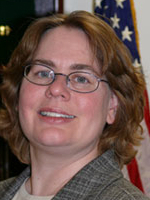 Ms. Holly Vineyard serves as the Deputy Assistant Secretary of Commerce for Asia (which spans South Asia, Southeast Asia, and East Asia and Oceania, but excludes China) in the International Trade Administration’s (ITA) Global Markets unit. ITA works to improve the global business environment and help U.S. companies compete at home and abroad. Ms. Vineyard directs the Department’s regional activities on market access, trade and commerce. She is responsible for developing programs, policies and strategies to strengthen the U.S. commercial position in Asia. Ms. Vineyard joined the Commerce Department in 1994. Prior to her current position, she served as the Deputy Assistant Secretary of Commerce for Africa, the Middle East and South Asia, Director of the Office of Africa, as Senior Policy Advisor to the Under Secretary of Commerce for International Trade, and as a desk officer for India and Singapore. She has been detailed twice to the Senate Finance Committee, where she worked with the Trade Subcommittee on a wide range of issues, including its consideration of the African Growth and Opportunity Act. Prior to joining the Commerce Department, Ms. Vineyard worked in the private sector. She holds a master’s degree from George Mason University and a bachelor’s degree from the College of William and Mary..
Ms. Holly Vineyard serves as the Deputy Assistant Secretary of Commerce for Asia (which spans South Asia, Southeast Asia, and East Asia and Oceania, but excludes China) in the International Trade Administration’s (ITA) Global Markets unit. ITA works to improve the global business environment and help U.S. companies compete at home and abroad. Ms. Vineyard directs the Department’s regional activities on market access, trade and commerce. She is responsible for developing programs, policies and strategies to strengthen the U.S. commercial position in Asia. Ms. Vineyard joined the Commerce Department in 1994. Prior to her current position, she served as the Deputy Assistant Secretary of Commerce for Africa, the Middle East and South Asia, Director of the Office of Africa, as Senior Policy Advisor to the Under Secretary of Commerce for International Trade, and as a desk officer for India and Singapore. She has been detailed twice to the Senate Finance Committee, where she worked with the Trade Subcommittee on a wide range of issues, including its consideration of the African Growth and Opportunity Act. Prior to joining the Commerce Department, Ms. Vineyard worked in the private sector. She holds a master’s degree from George Mason University and a bachelor’s degree from the College of William and Mary..
Amb. Anil Wadhwa
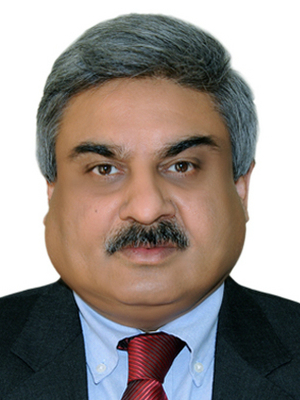 Amb. Anil Wadhwa is Secretary (East), Ministry of External Affairs, India. Ambassador Wadhwa was born on May 26, 1957 and has been a member of the Indian Foreign Service since July 1, 1979. His previous diplomatic assignments include serving as Third Secretary in the High Commission of India, Hong Kong (Sep. 1981 to Sep. 1983), First Secretary in the Embassy of India, Beijing (Nov. 1983 to Feb. 1987), Deputy Secretary in the Ministry of External Affairs, New Delhi (Feb. 1987 to May 1989), UN Disarmament Fellow in Geneva (July to Nov. 1989), First Secretary (Disarmament) at the Permanent Mission of India in Geneva (Dec. 1989 to Dec. 1992), Counsellor in the Embassy of India, Beijing (Jan. 1993 to Jul. 1993), and Director/Joint Secretary on deputation to the Provisional Technical Secretariat. Later, he also served as the Technical Secretariat for the Organization for the Prohibition of Chemical Weapons (OPCW) in The Hague (July 1993 to July 2000), was the Chief Adviser, Ministry of External Affairs (Earthquake Relief) in Gujarat, (Dec. 2000 to Jan. 2001), and Joint Secretary of Central and Eastern Europe, Ministry of External Affairs, New Delhi (Mar. 2001 to Feb.2004). His previous Ambassadorial assignments include Ambassador of India to Poland (Mar. 2004 to Aug. 2007) and to the Sultanate of Oman (Aug. 2007 to Sep. 2011). He is married to Ambassador Deepa Gopalan Wadhwa, currently the Indian Ambassador to Japan and they have two sons together. He holds a Master’s Degree in History. He is fluent in English, Hindi, Chinese and French.
Amb. Anil Wadhwa is Secretary (East), Ministry of External Affairs, India. Ambassador Wadhwa was born on May 26, 1957 and has been a member of the Indian Foreign Service since July 1, 1979. His previous diplomatic assignments include serving as Third Secretary in the High Commission of India, Hong Kong (Sep. 1981 to Sep. 1983), First Secretary in the Embassy of India, Beijing (Nov. 1983 to Feb. 1987), Deputy Secretary in the Ministry of External Affairs, New Delhi (Feb. 1987 to May 1989), UN Disarmament Fellow in Geneva (July to Nov. 1989), First Secretary (Disarmament) at the Permanent Mission of India in Geneva (Dec. 1989 to Dec. 1992), Counsellor in the Embassy of India, Beijing (Jan. 1993 to Jul. 1993), and Director/Joint Secretary on deputation to the Provisional Technical Secretariat. Later, he also served as the Technical Secretariat for the Organization for the Prohibition of Chemical Weapons (OPCW) in The Hague (July 1993 to July 2000), was the Chief Adviser, Ministry of External Affairs (Earthquake Relief) in Gujarat, (Dec. 2000 to Jan. 2001), and Joint Secretary of Central and Eastern Europe, Ministry of External Affairs, New Delhi (Mar. 2001 to Feb.2004). His previous Ambassadorial assignments include Ambassador of India to Poland (Mar. 2004 to Aug. 2007) and to the Sultanate of Oman (Aug. 2007 to Sep. 2011). He is married to Ambassador Deepa Gopalan Wadhwa, currently the Indian Ambassador to Japan and they have two sons together. He holds a Master’s Degree in History. He is fluent in English, Hindi, Chinese and French.
